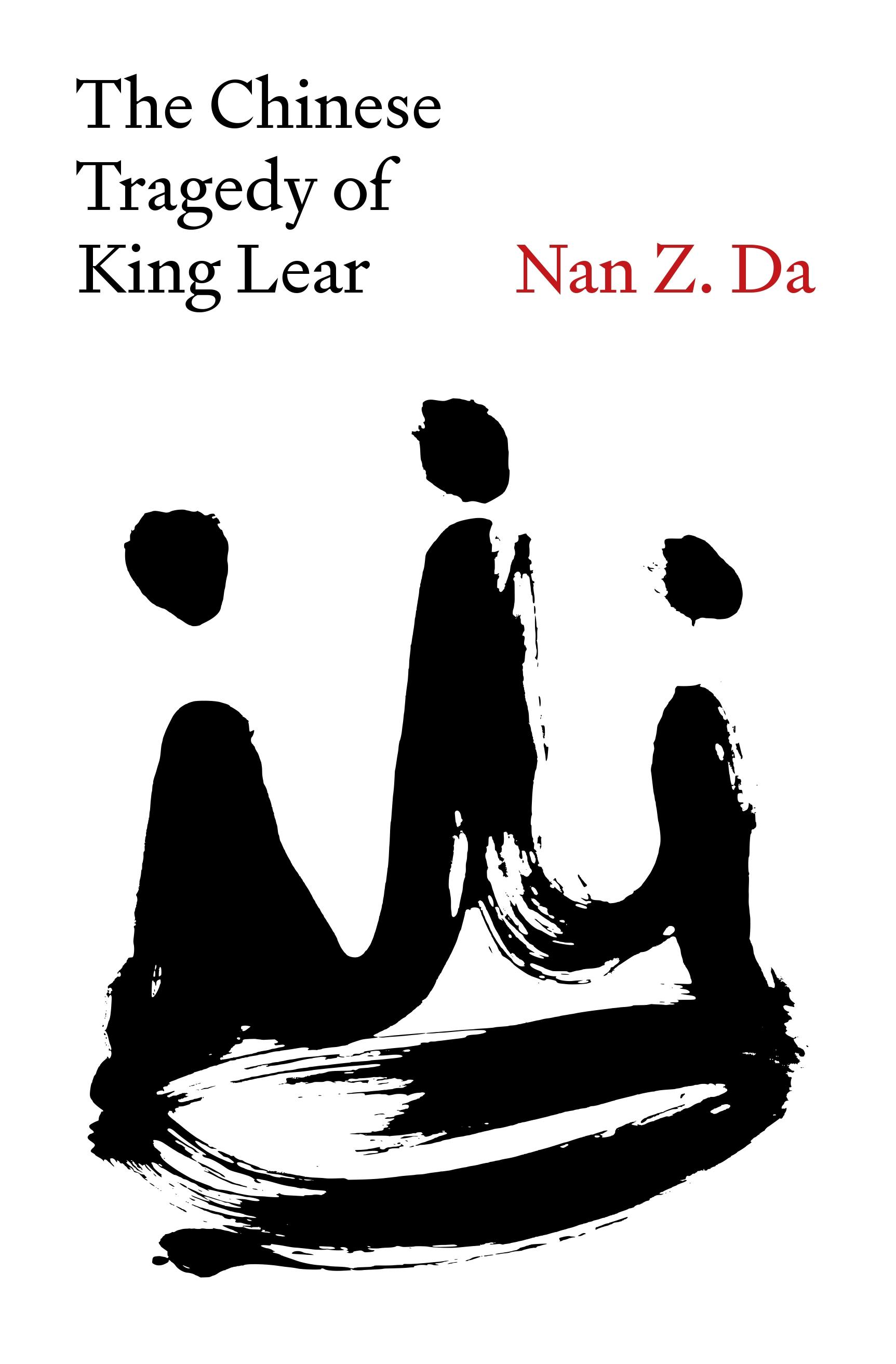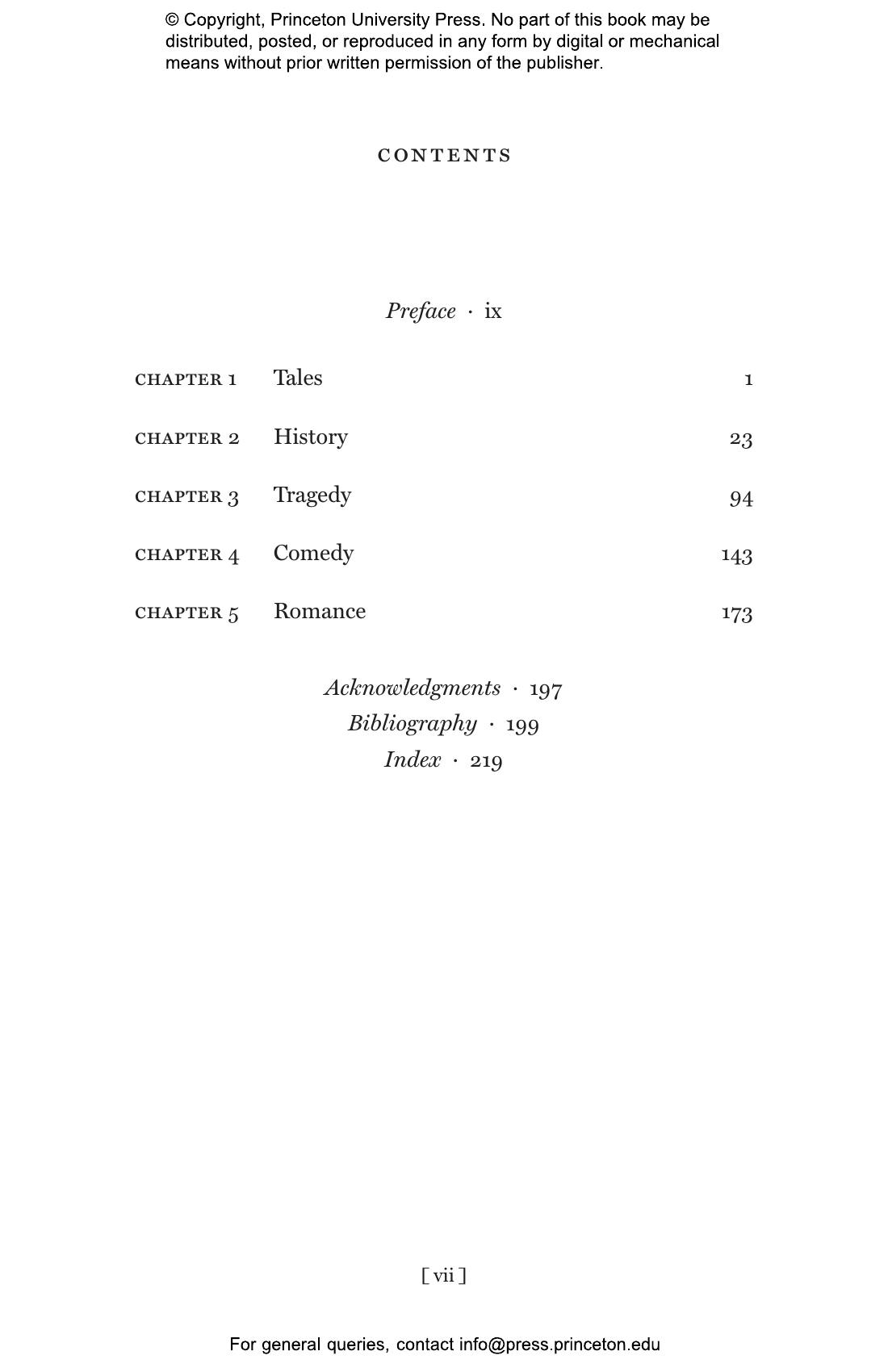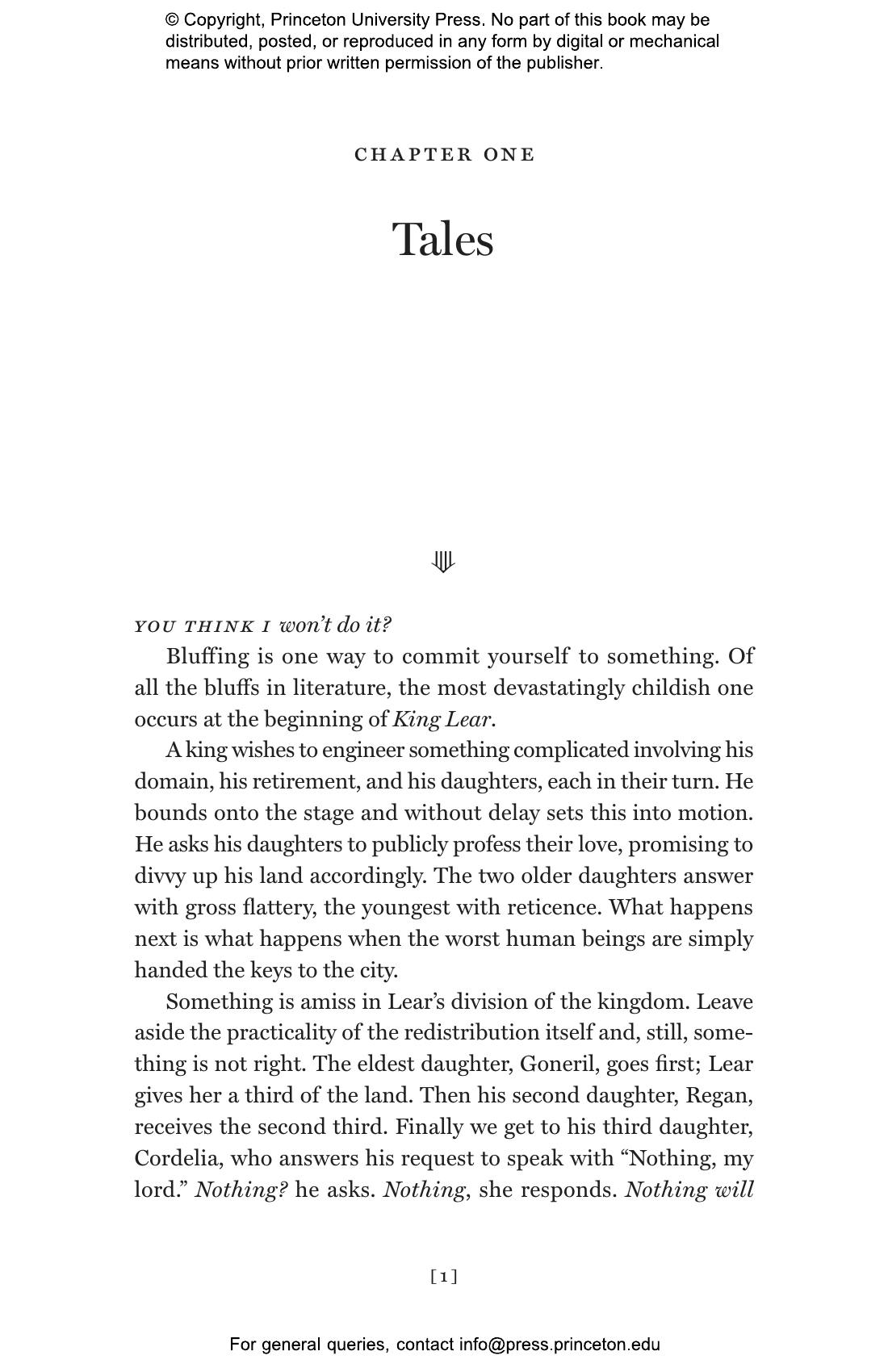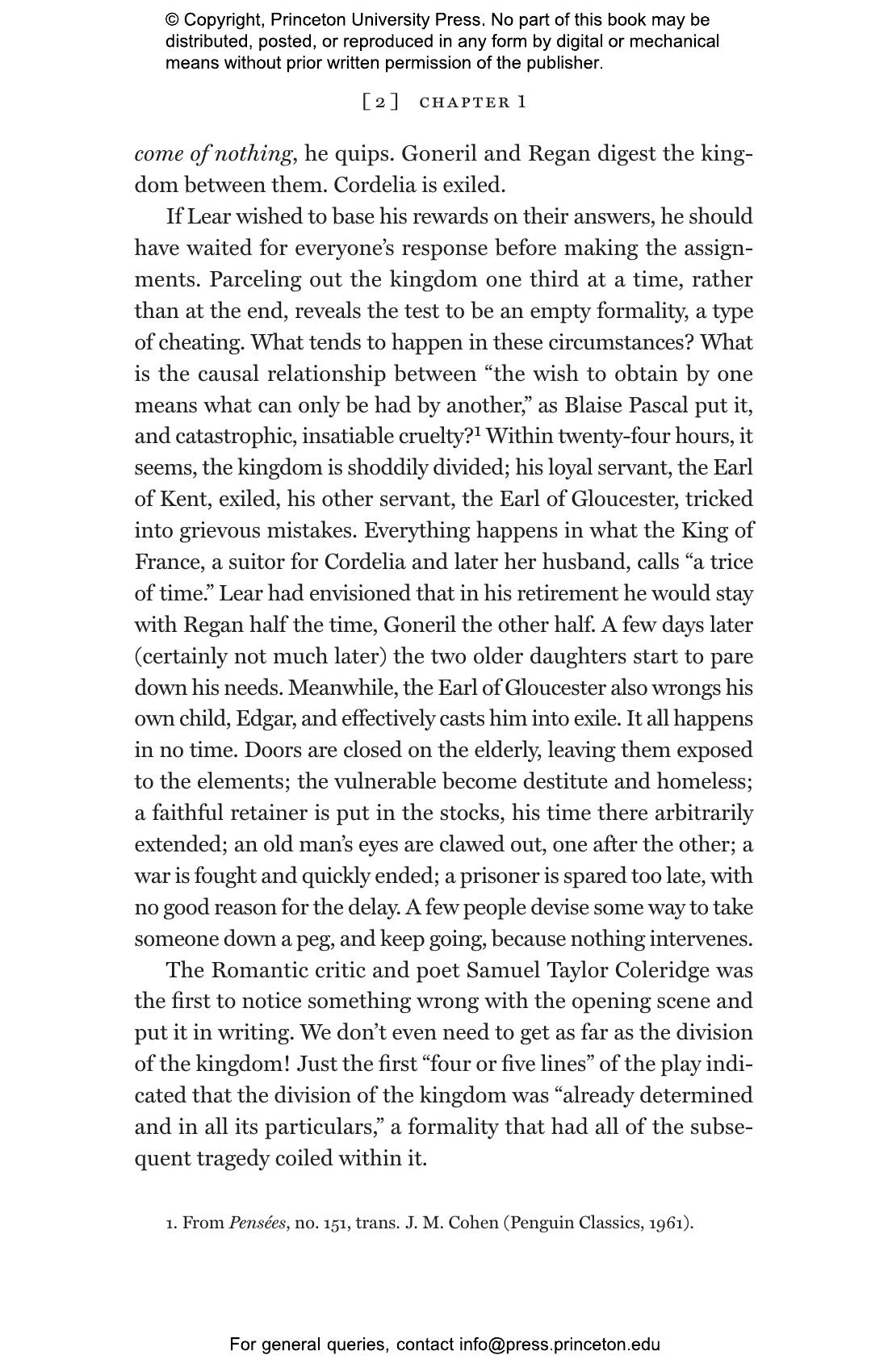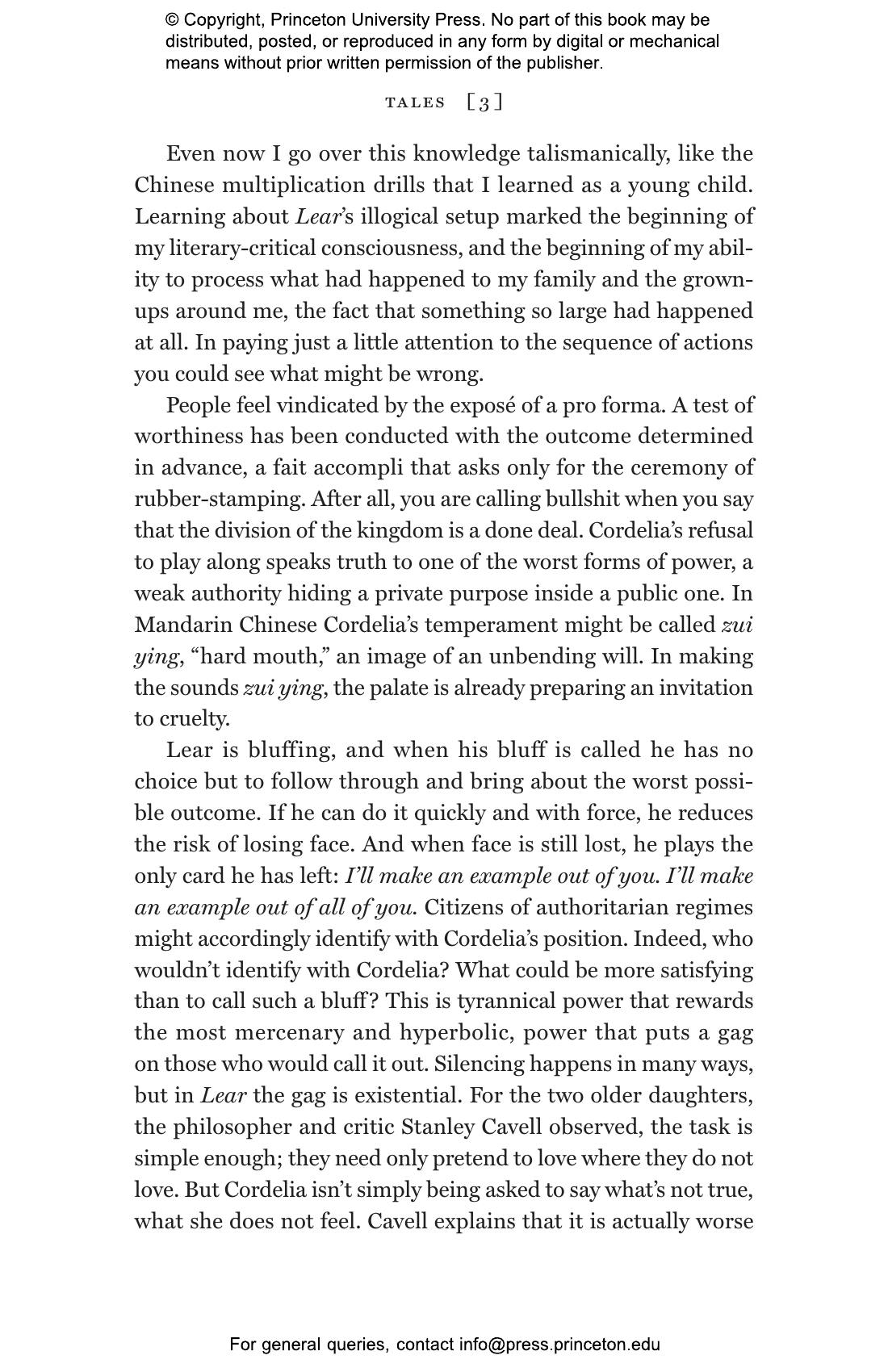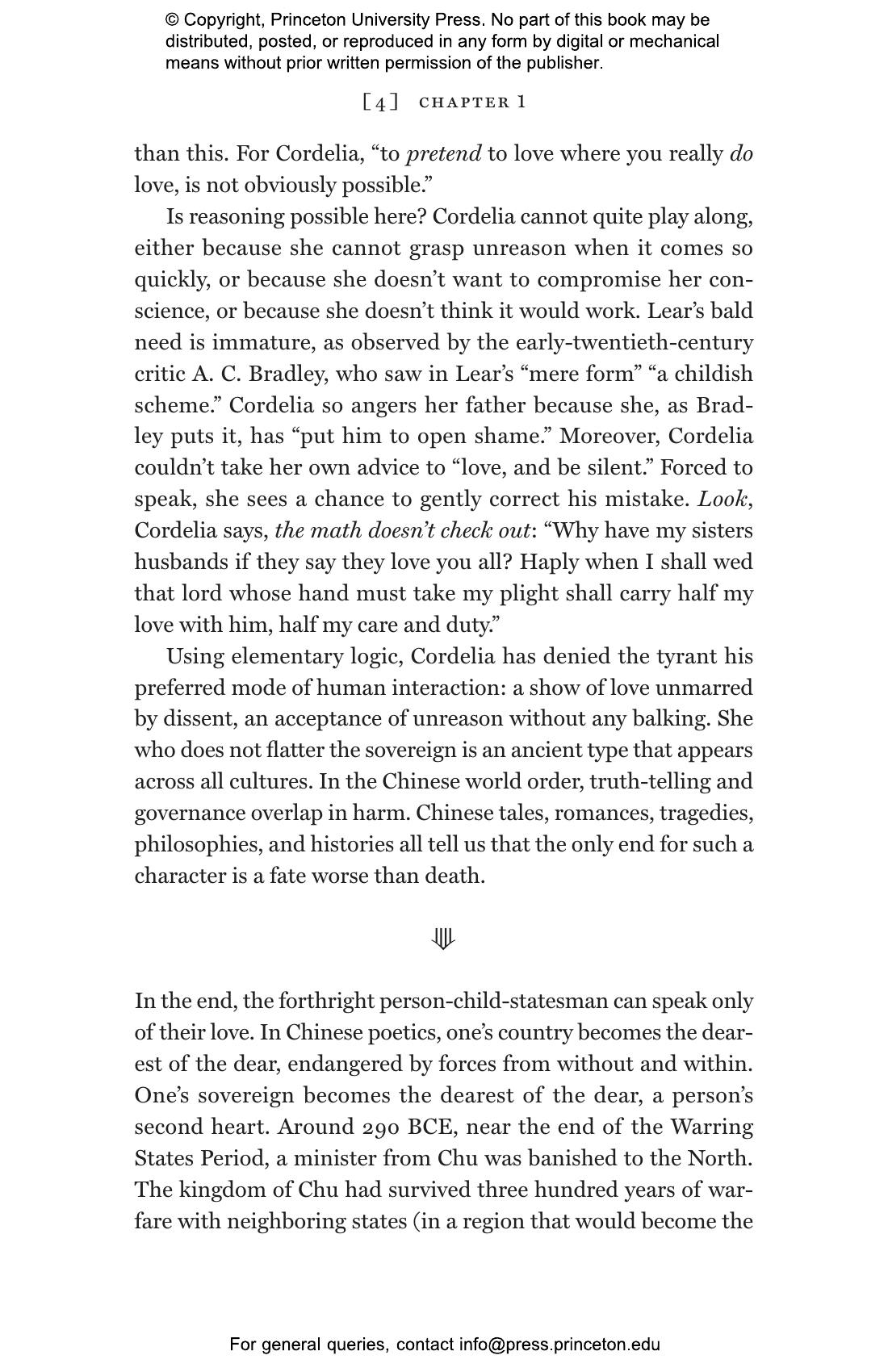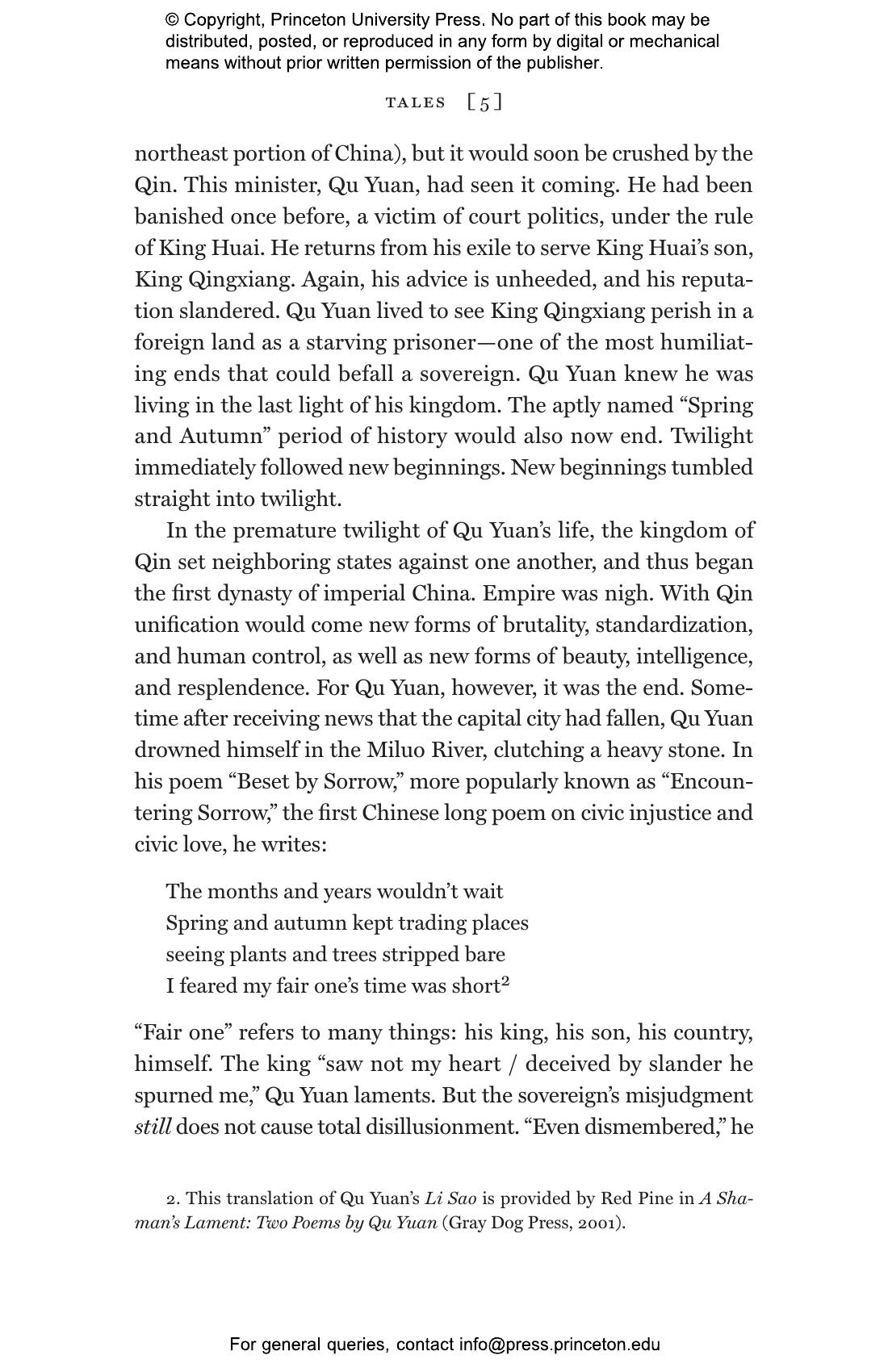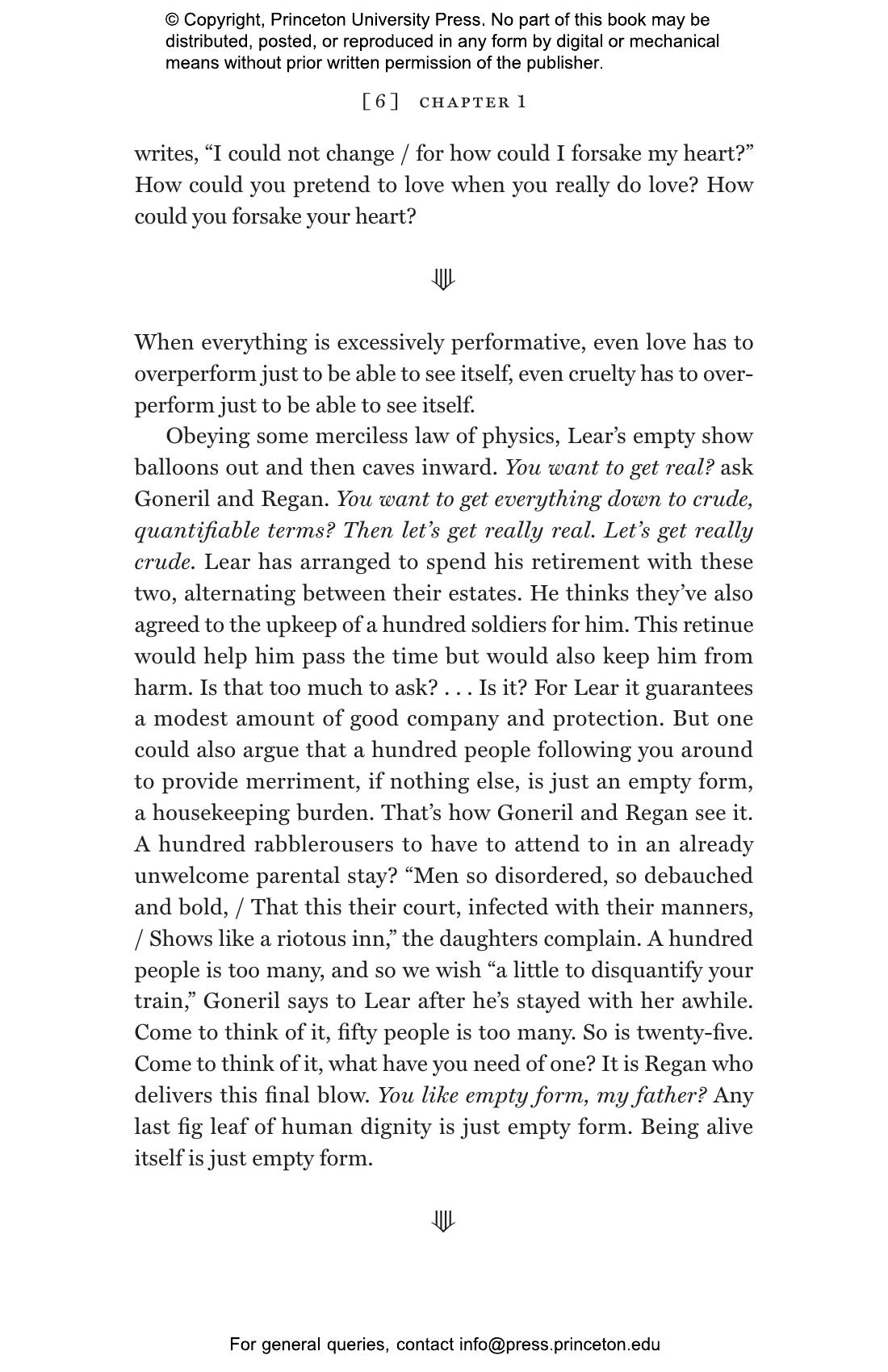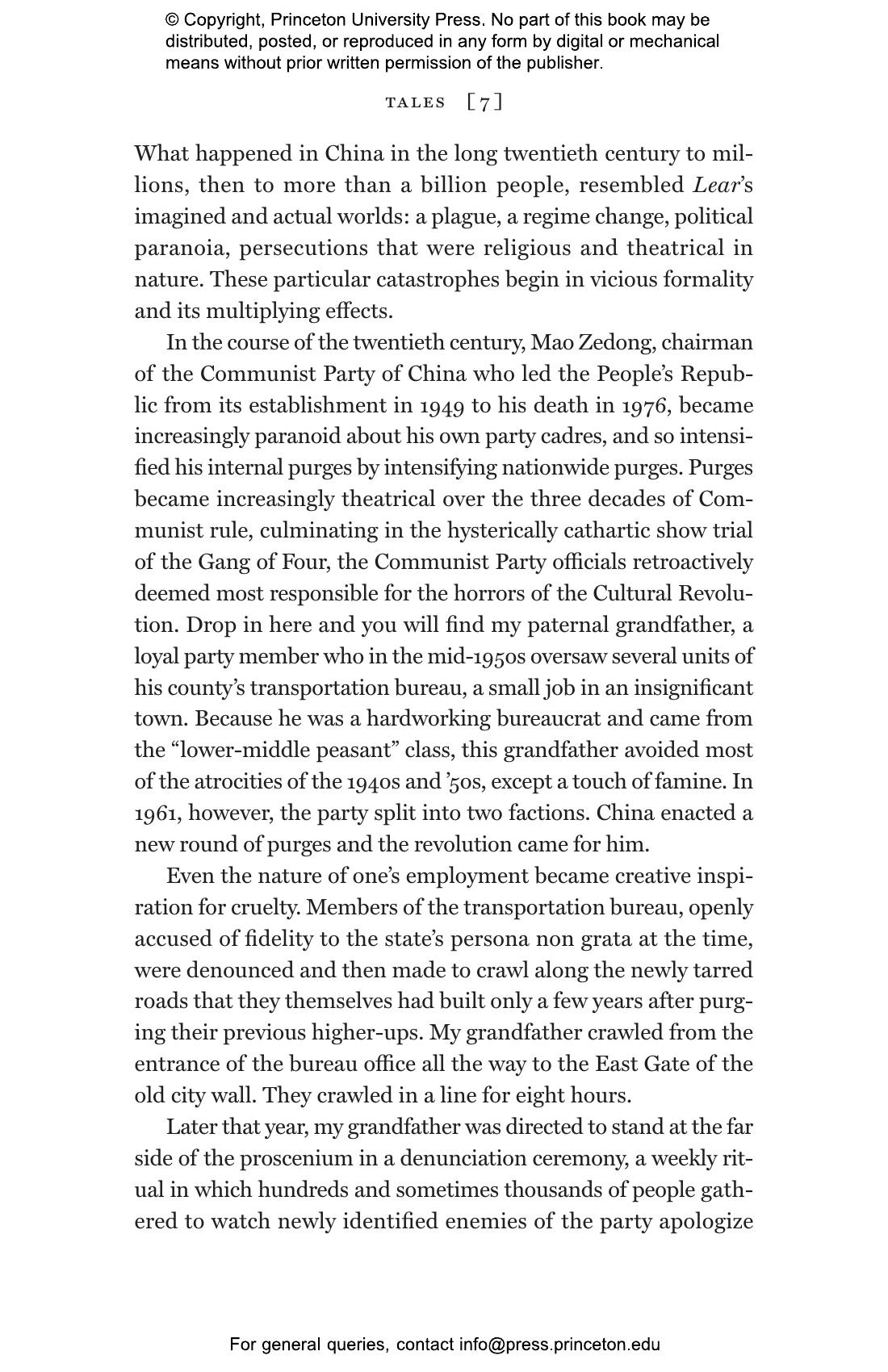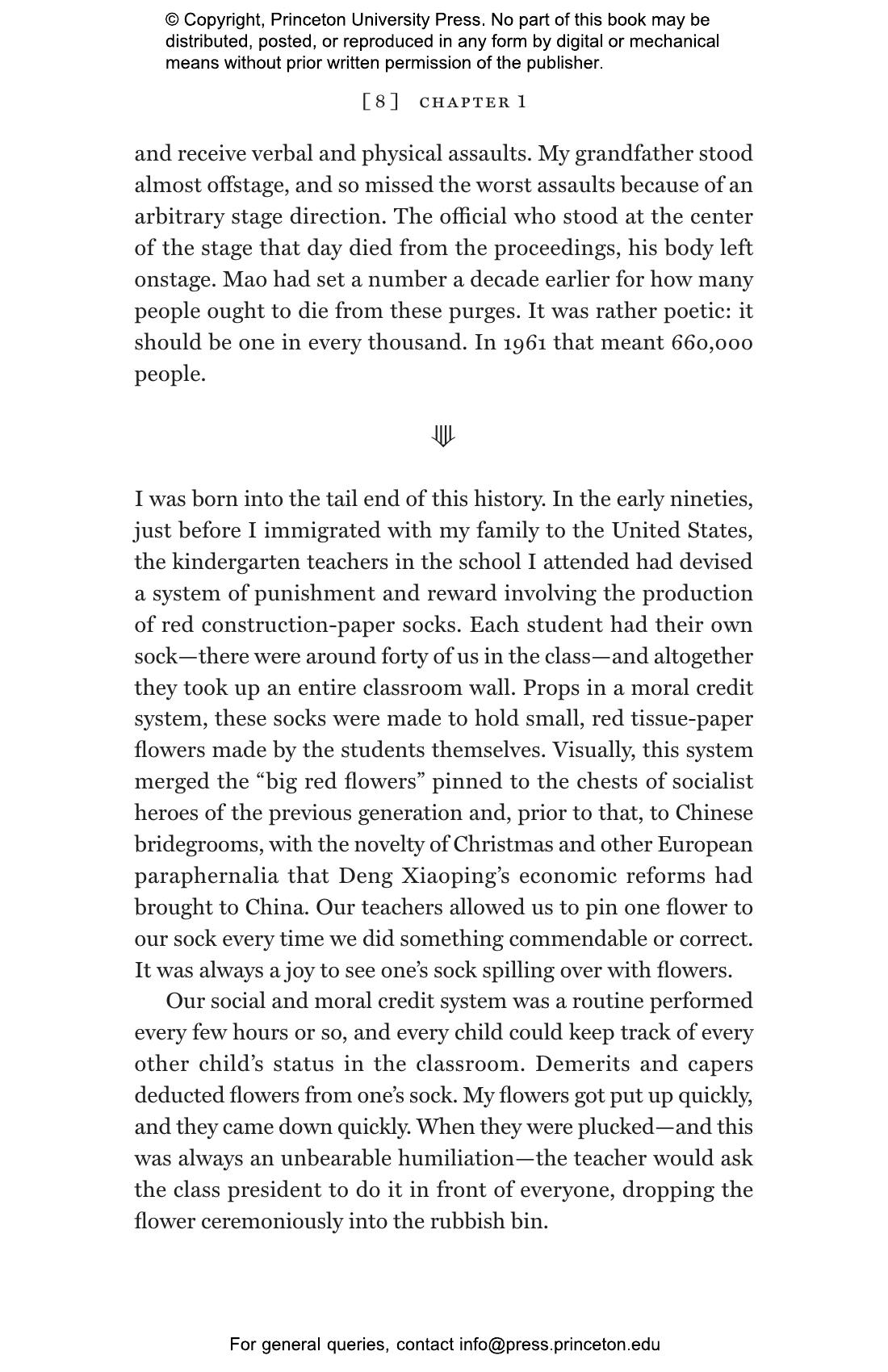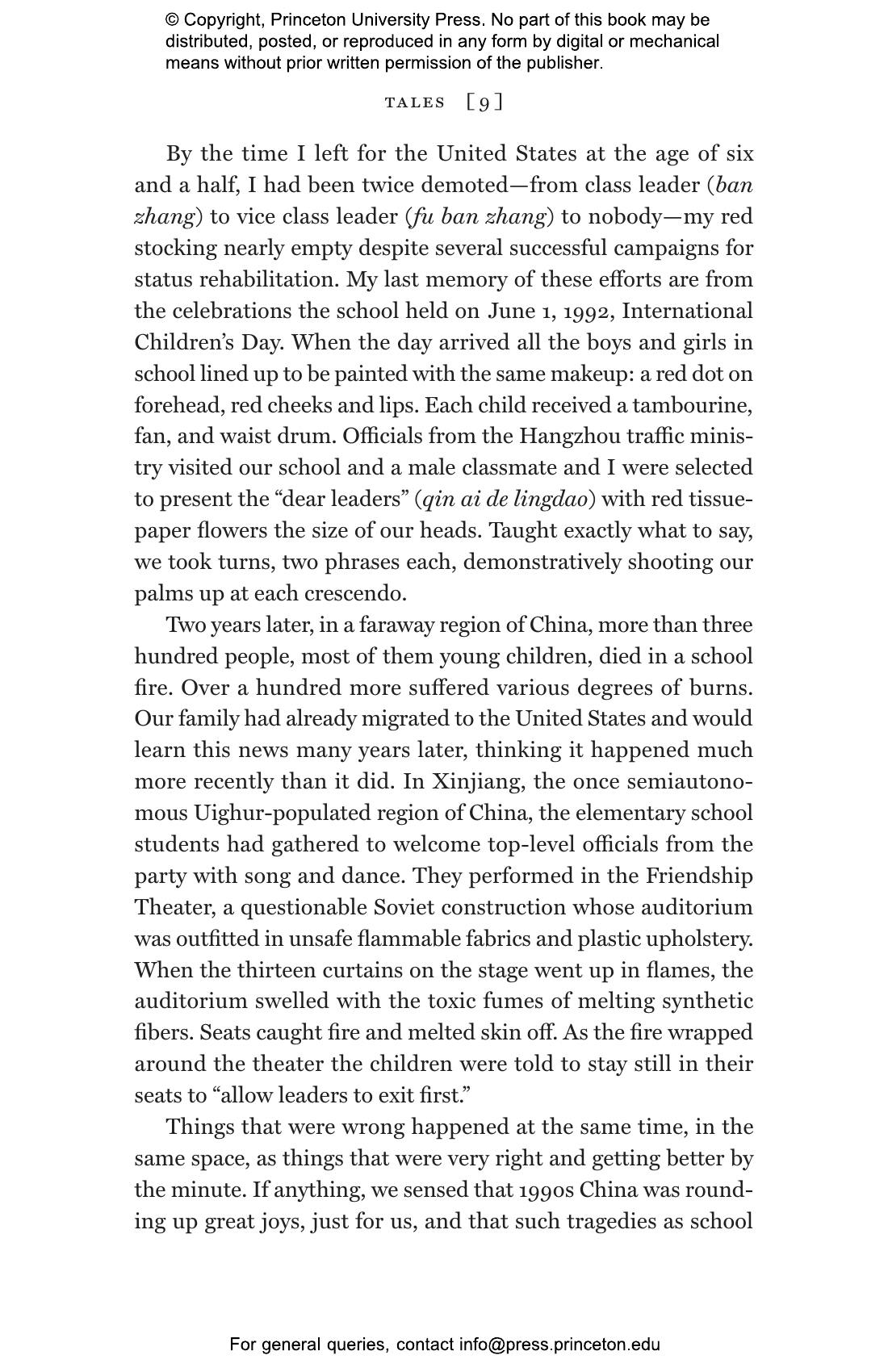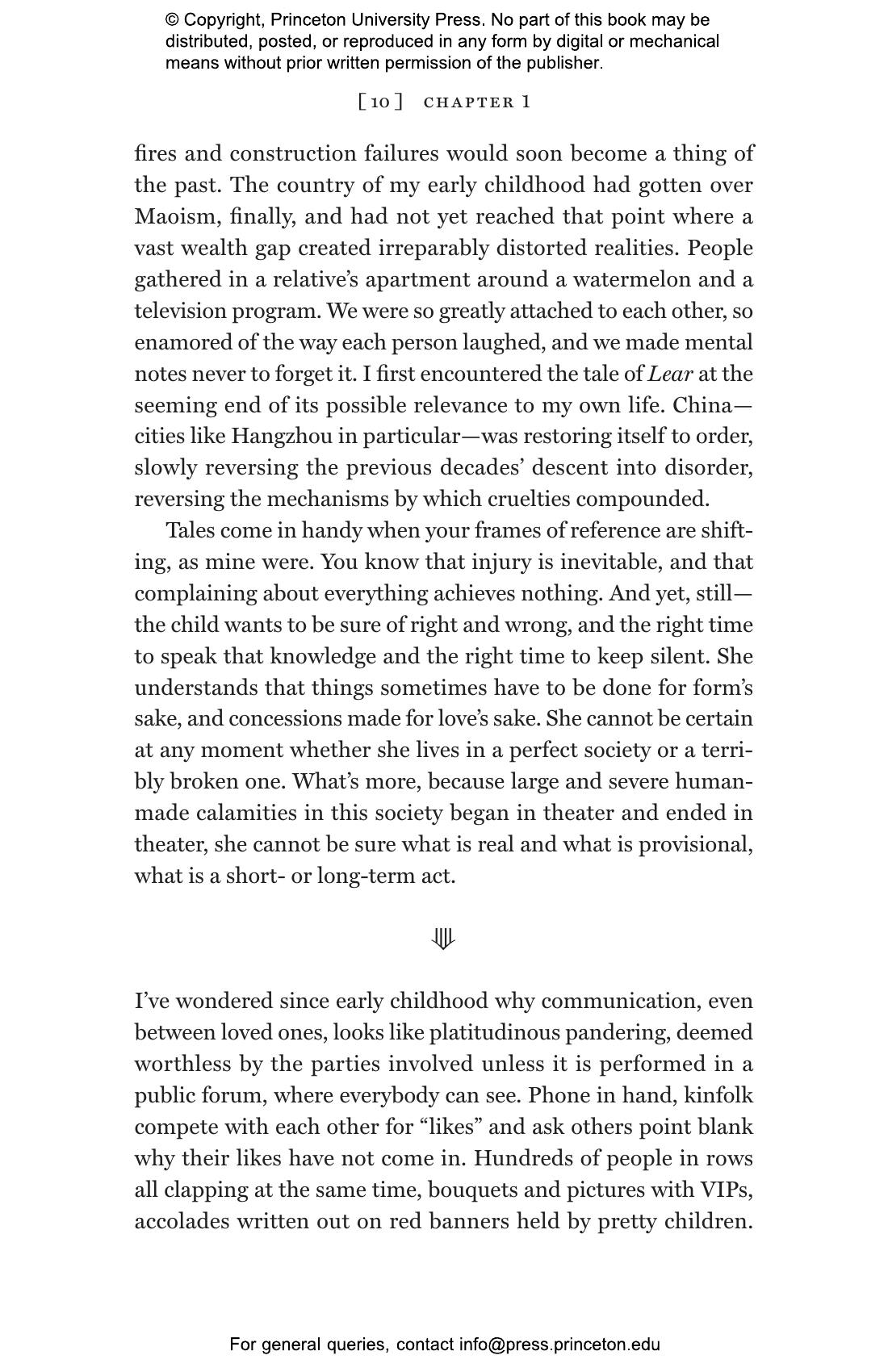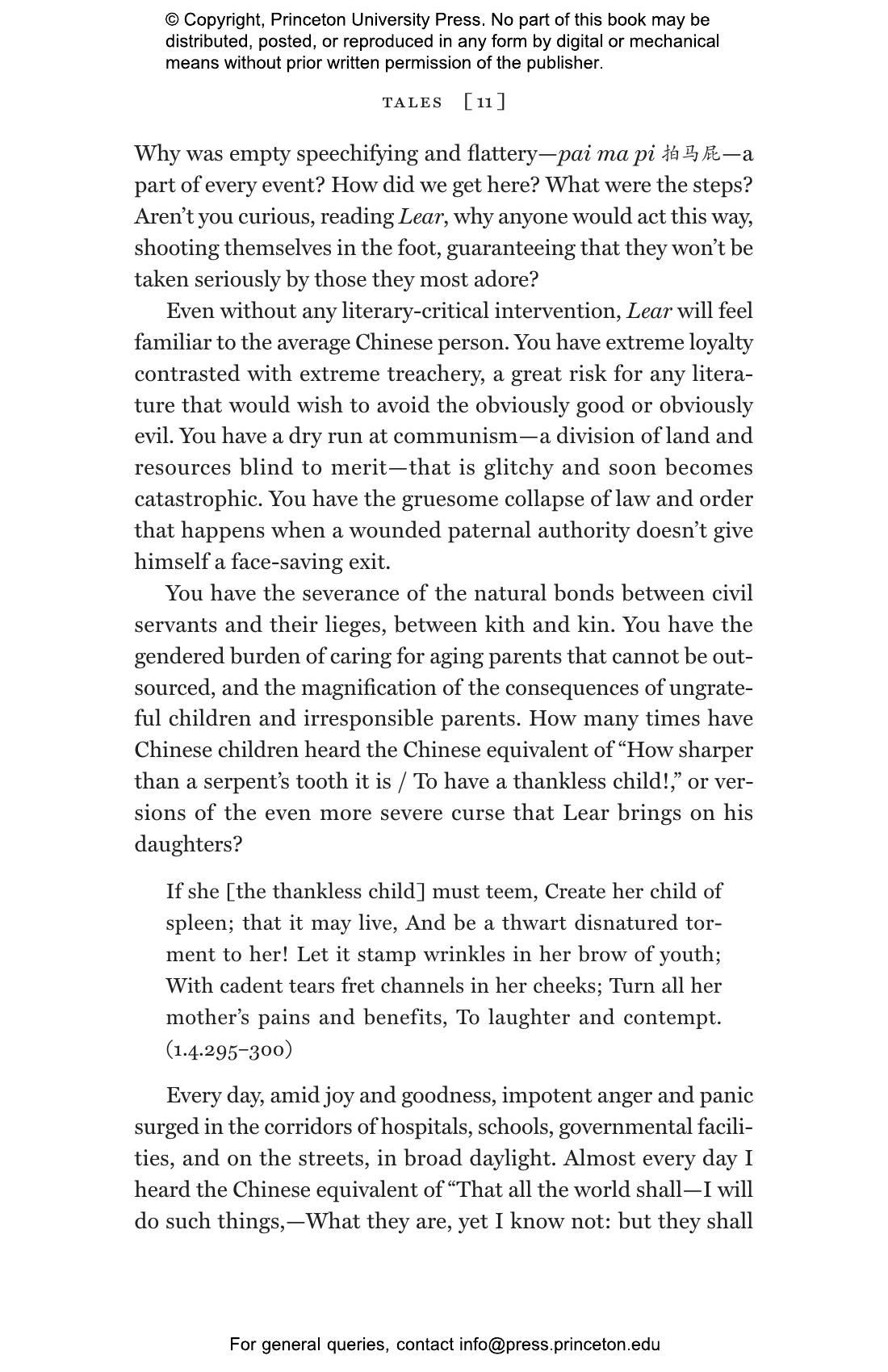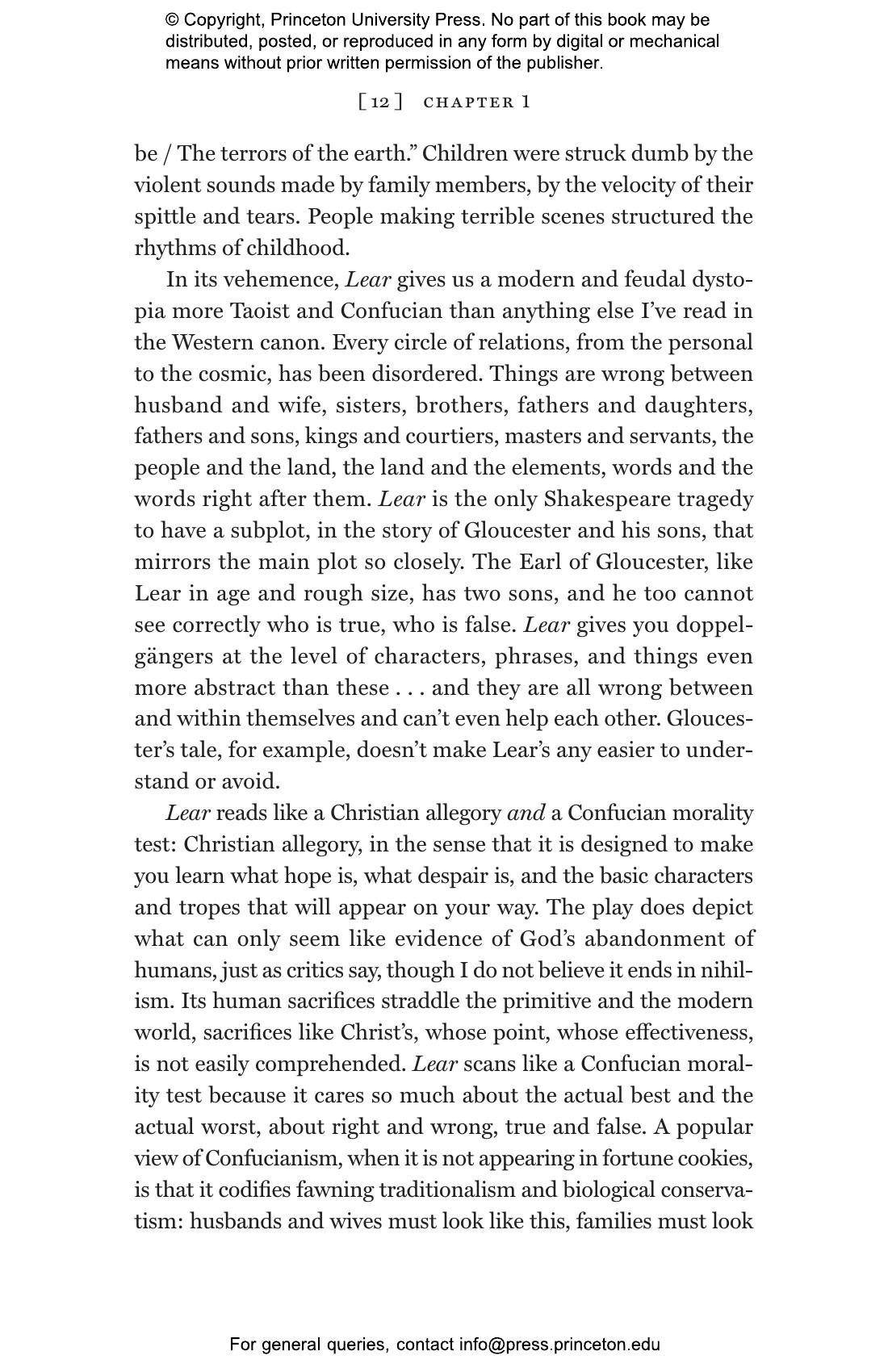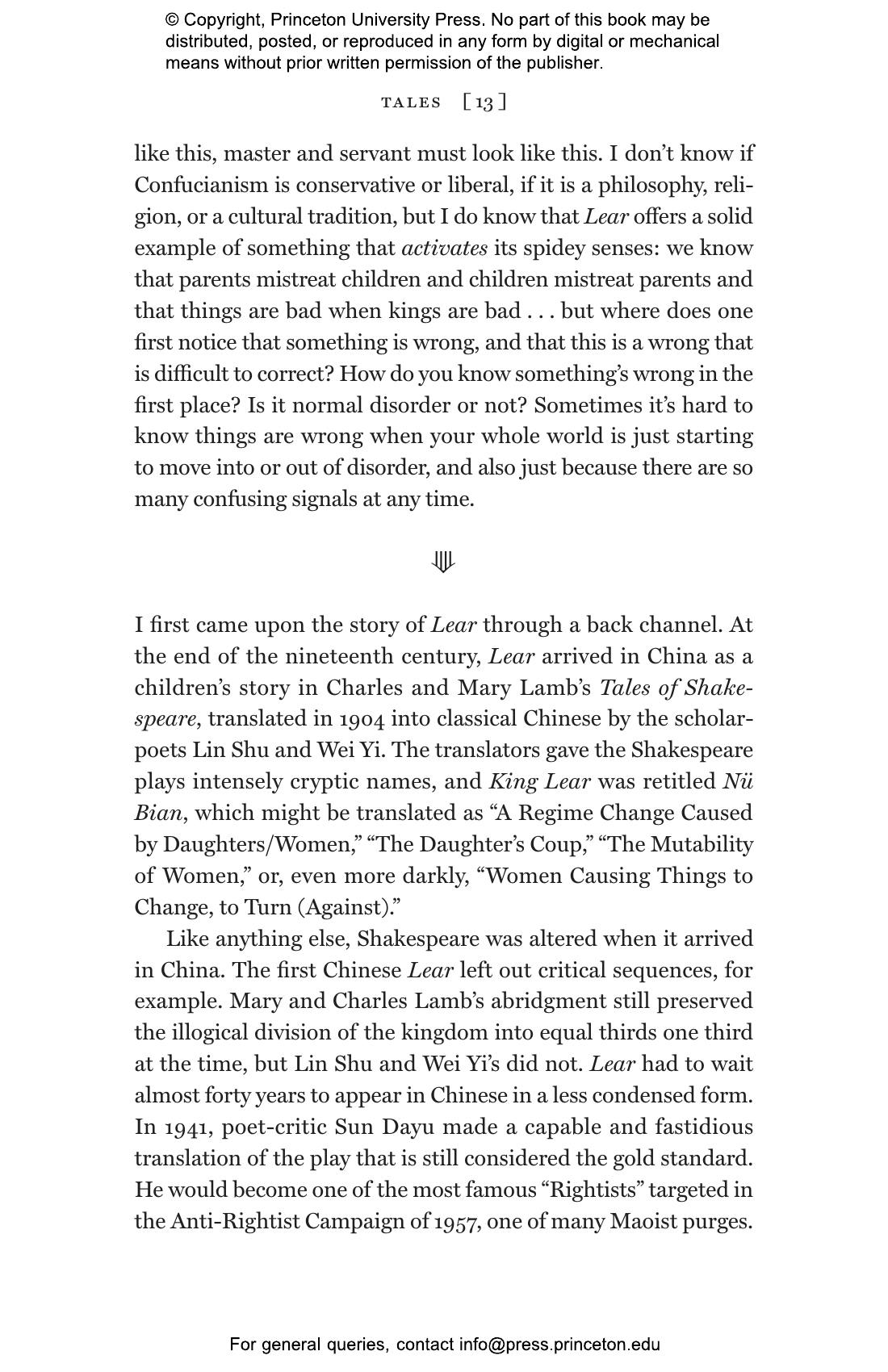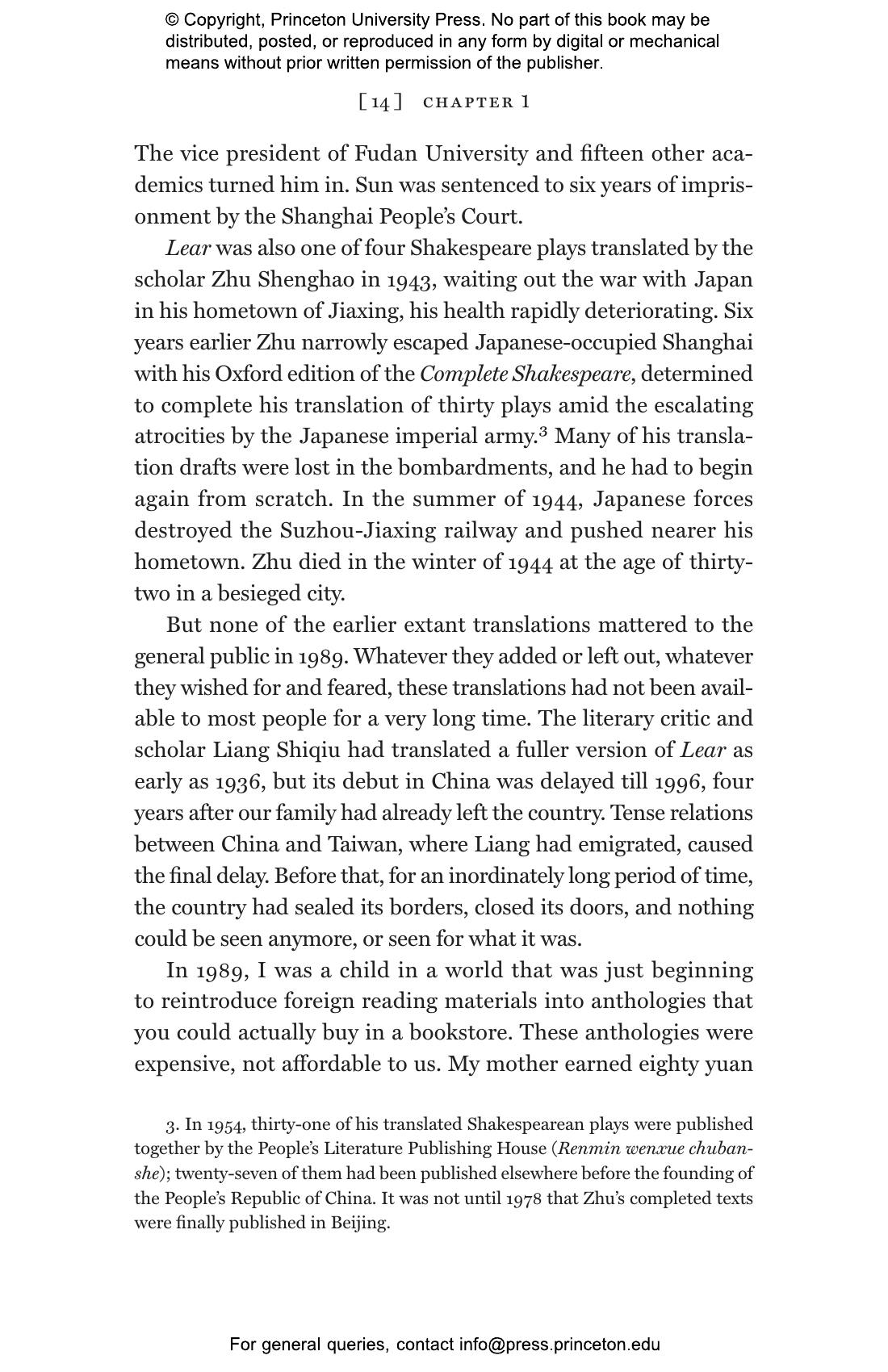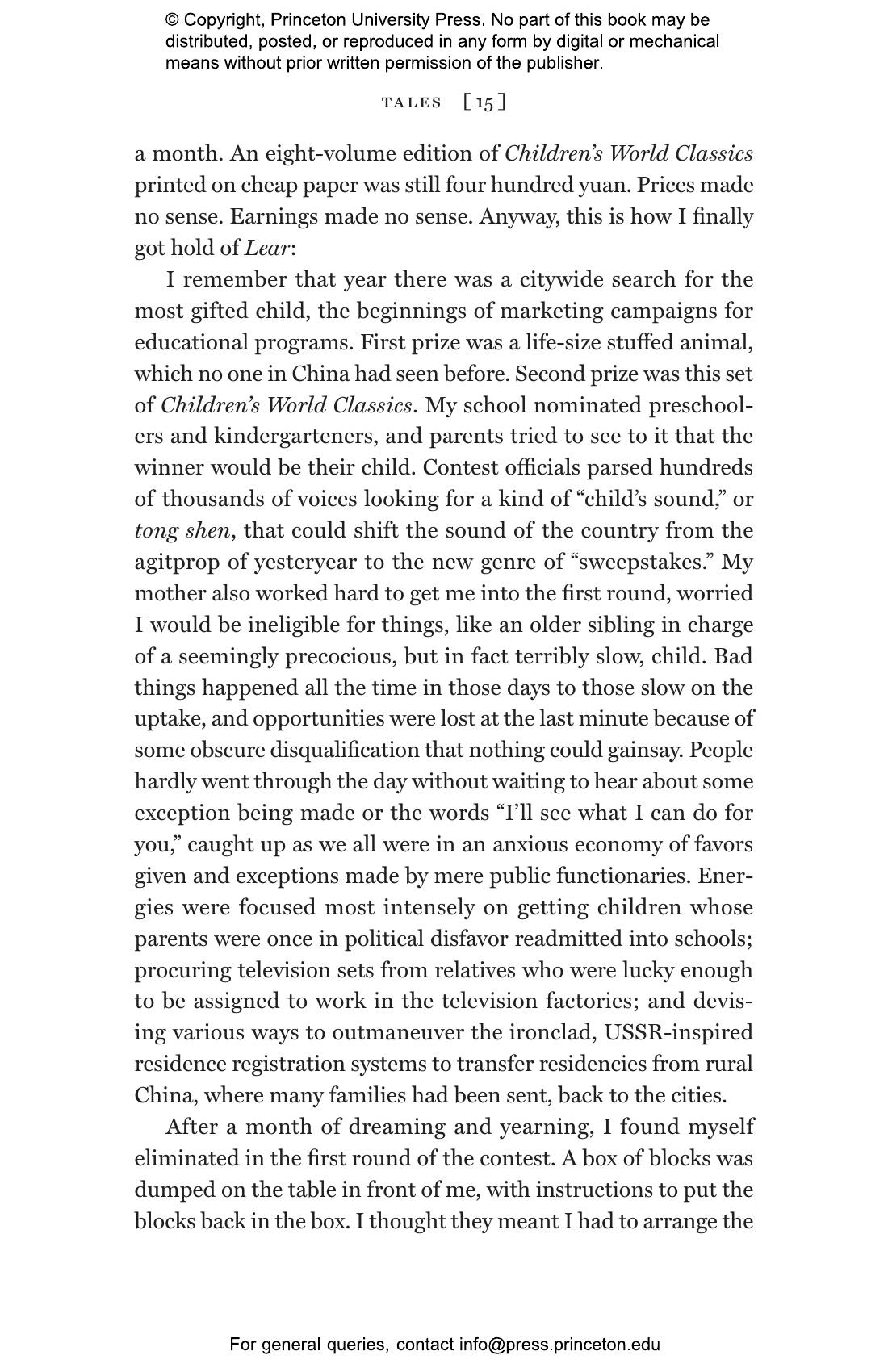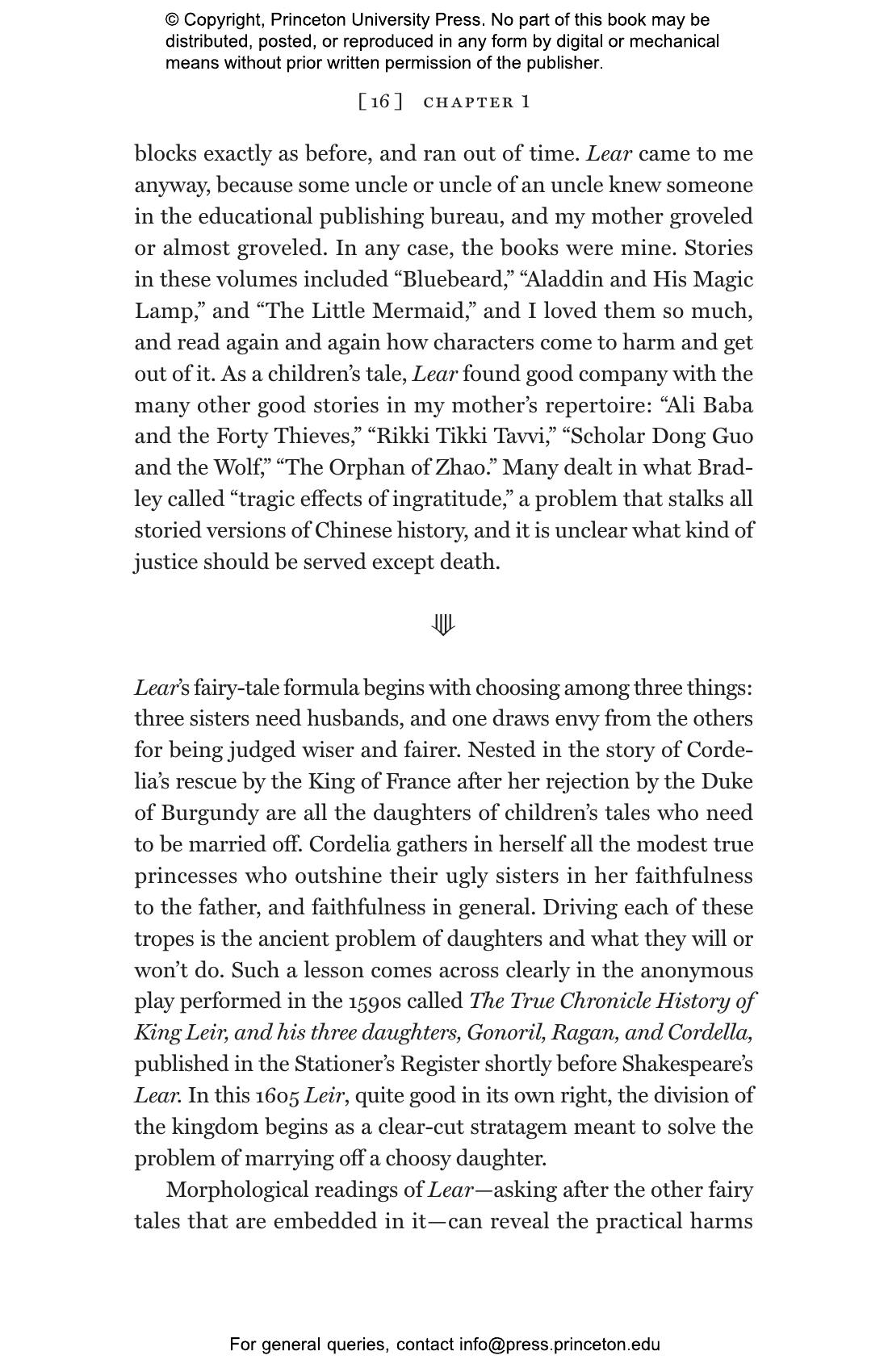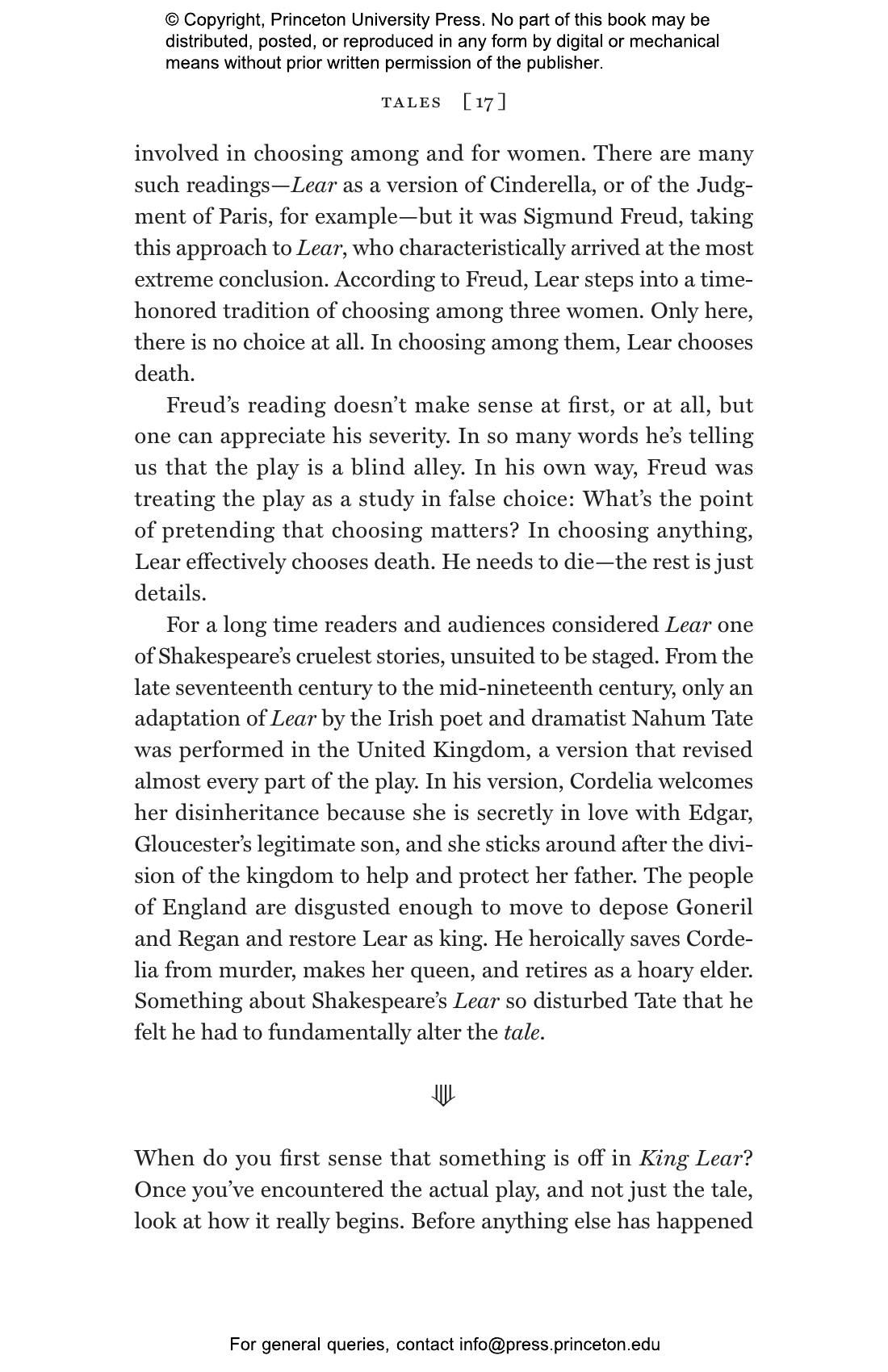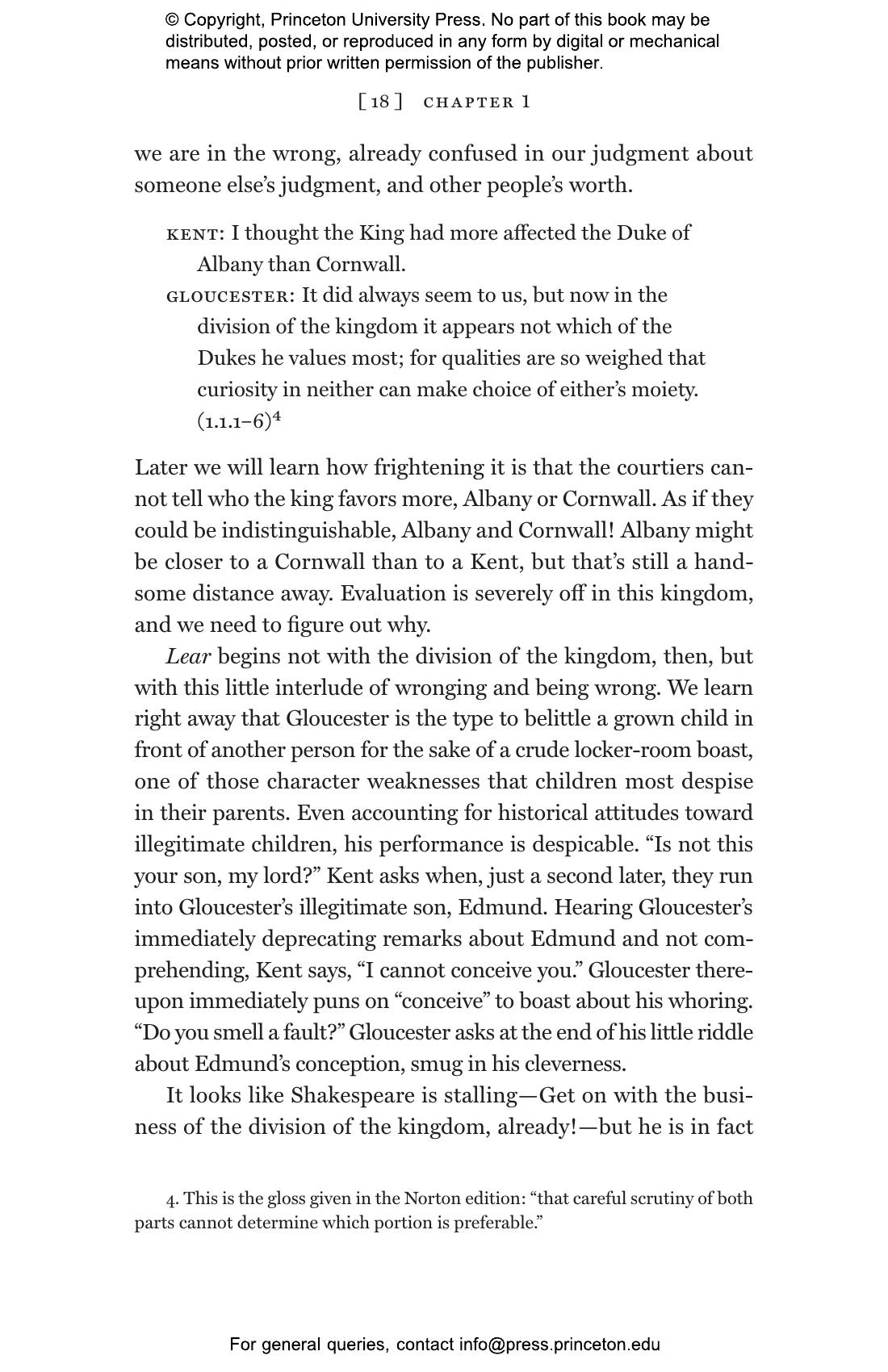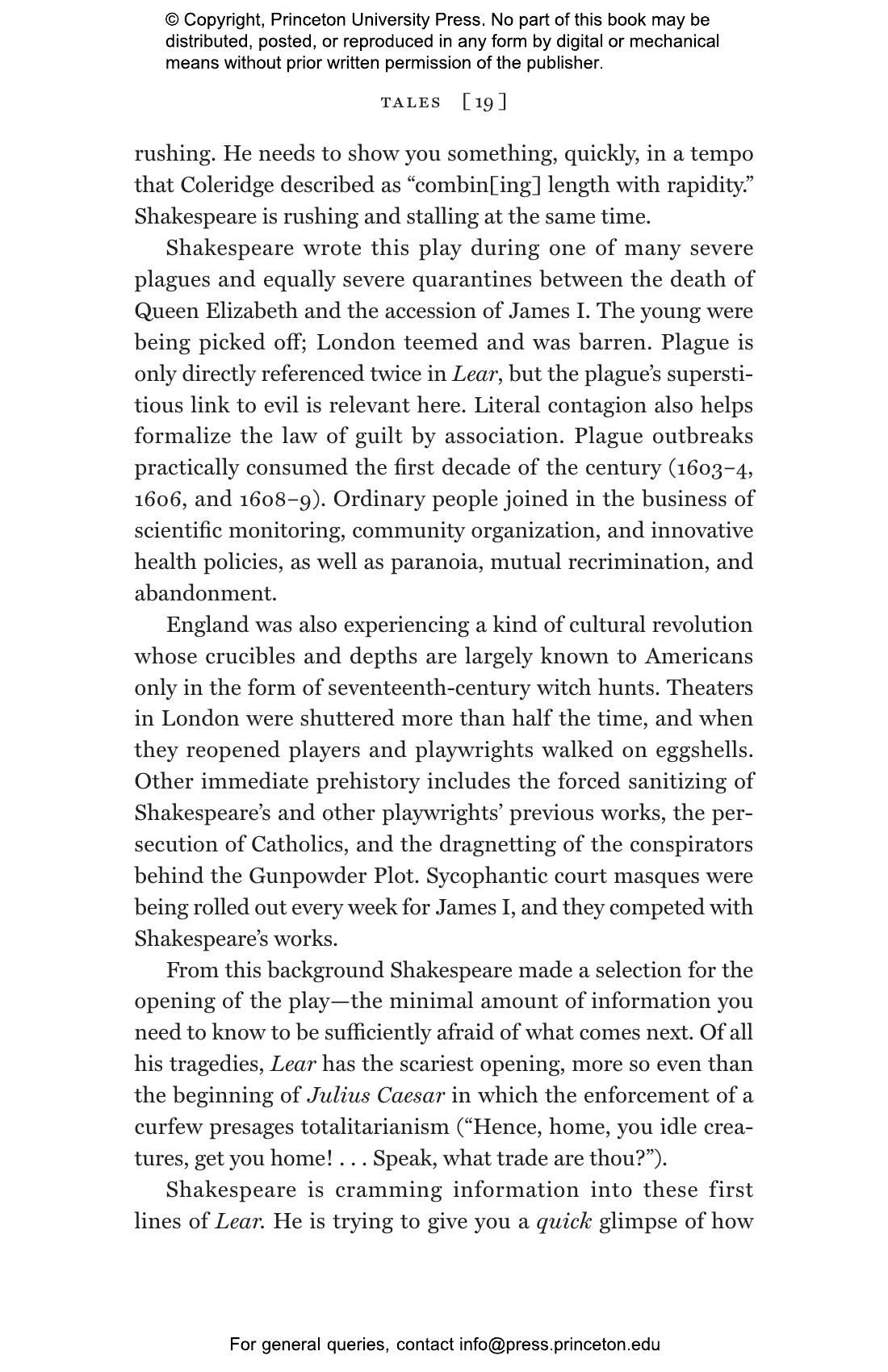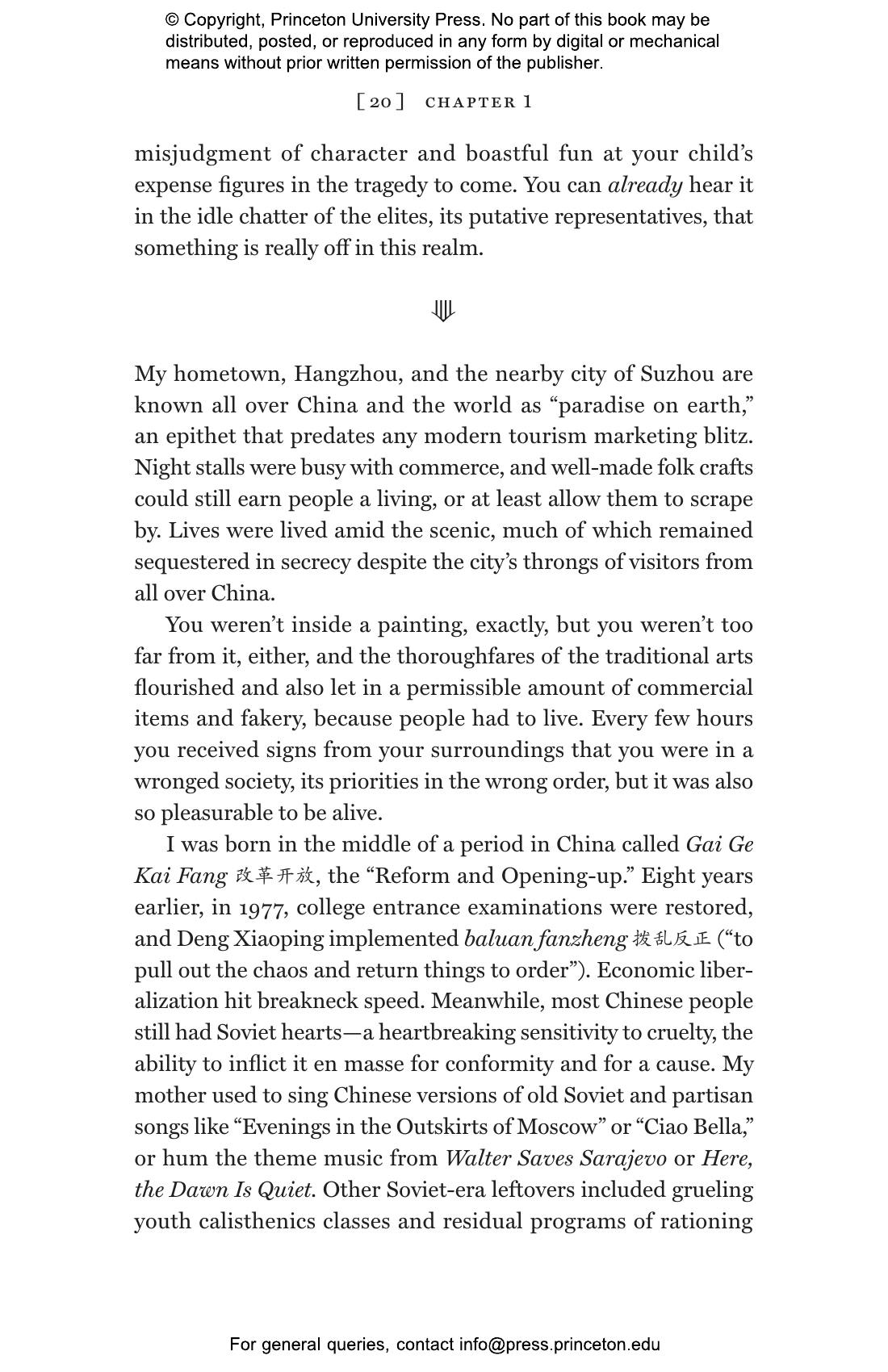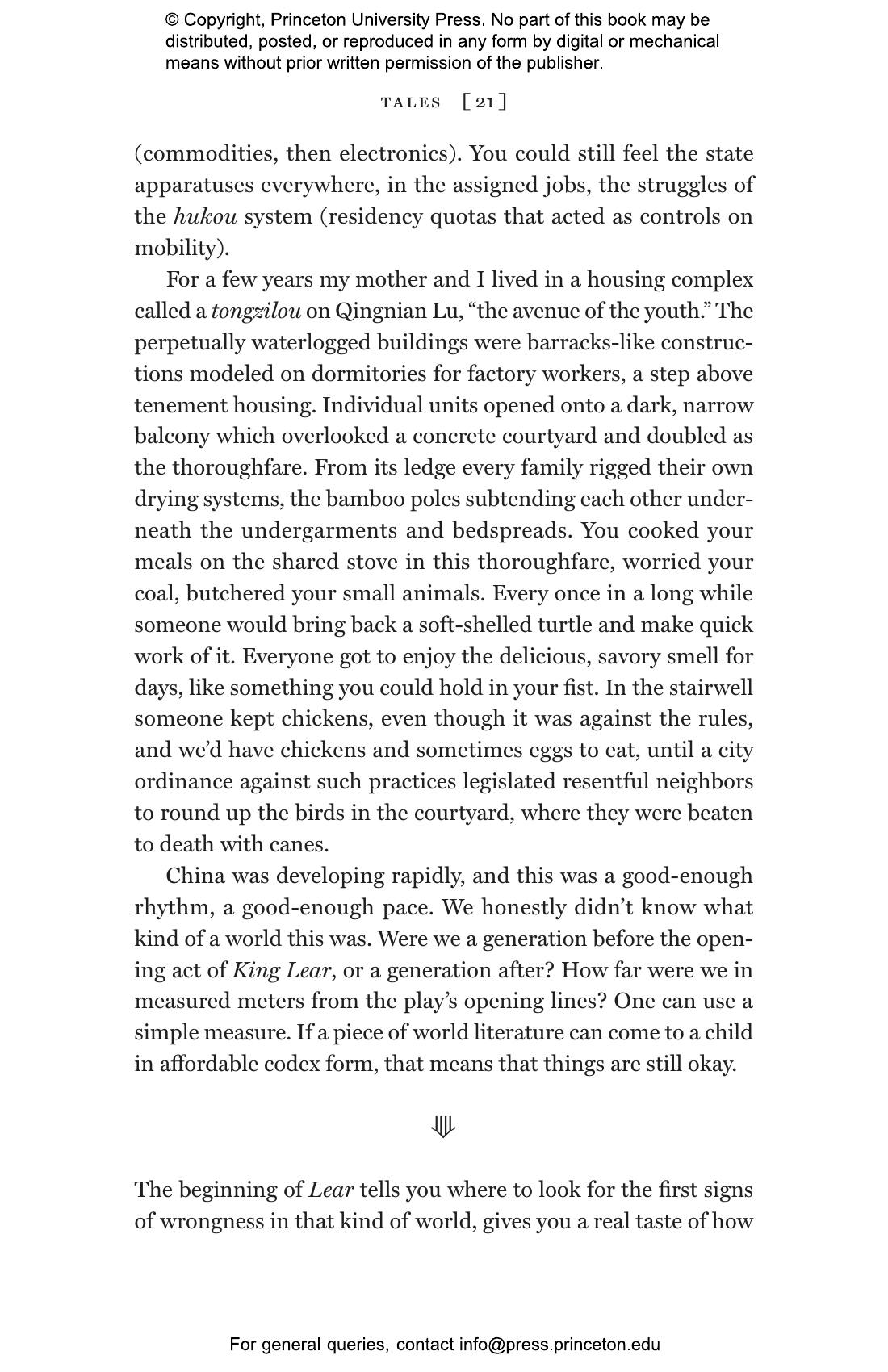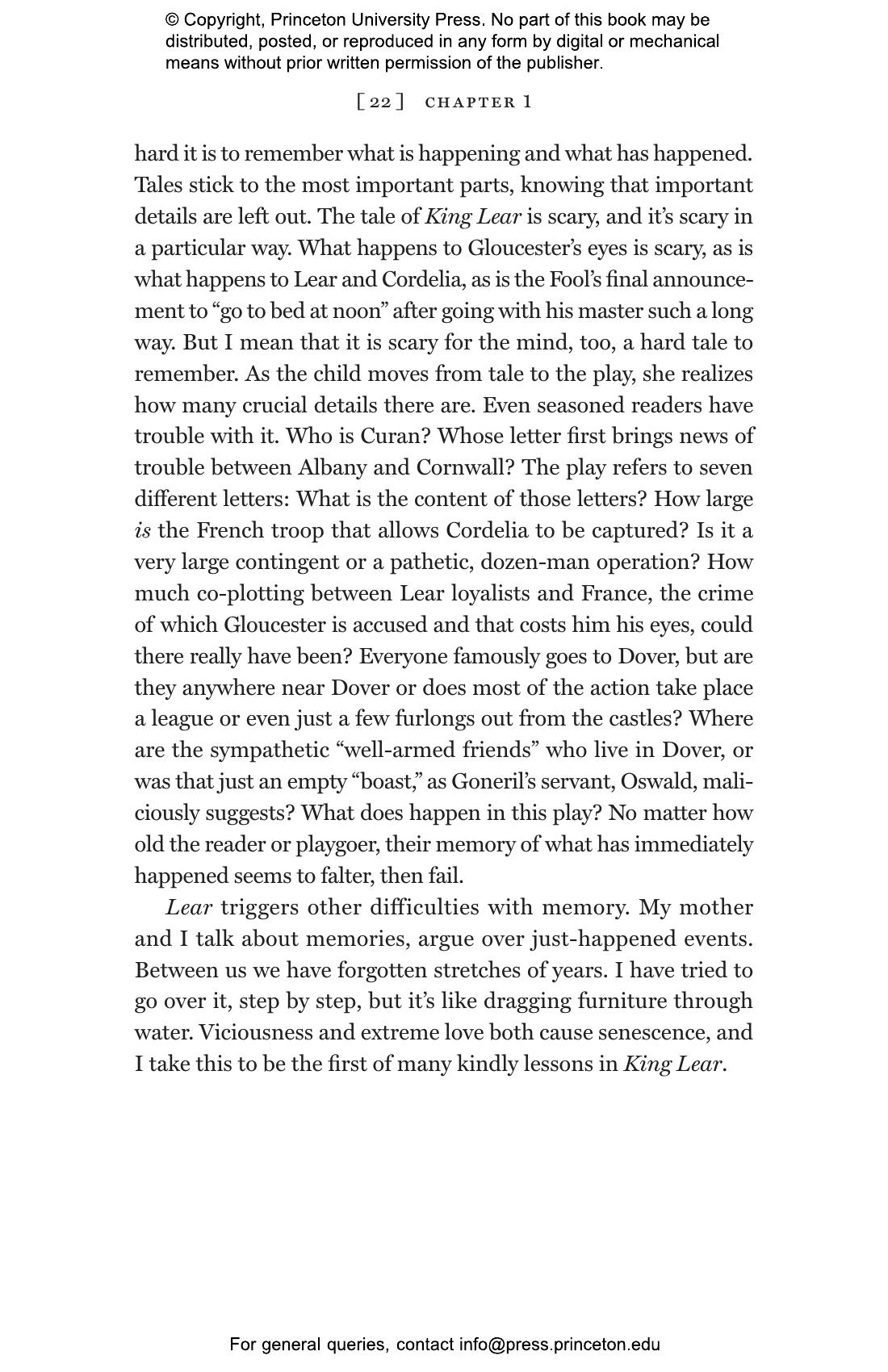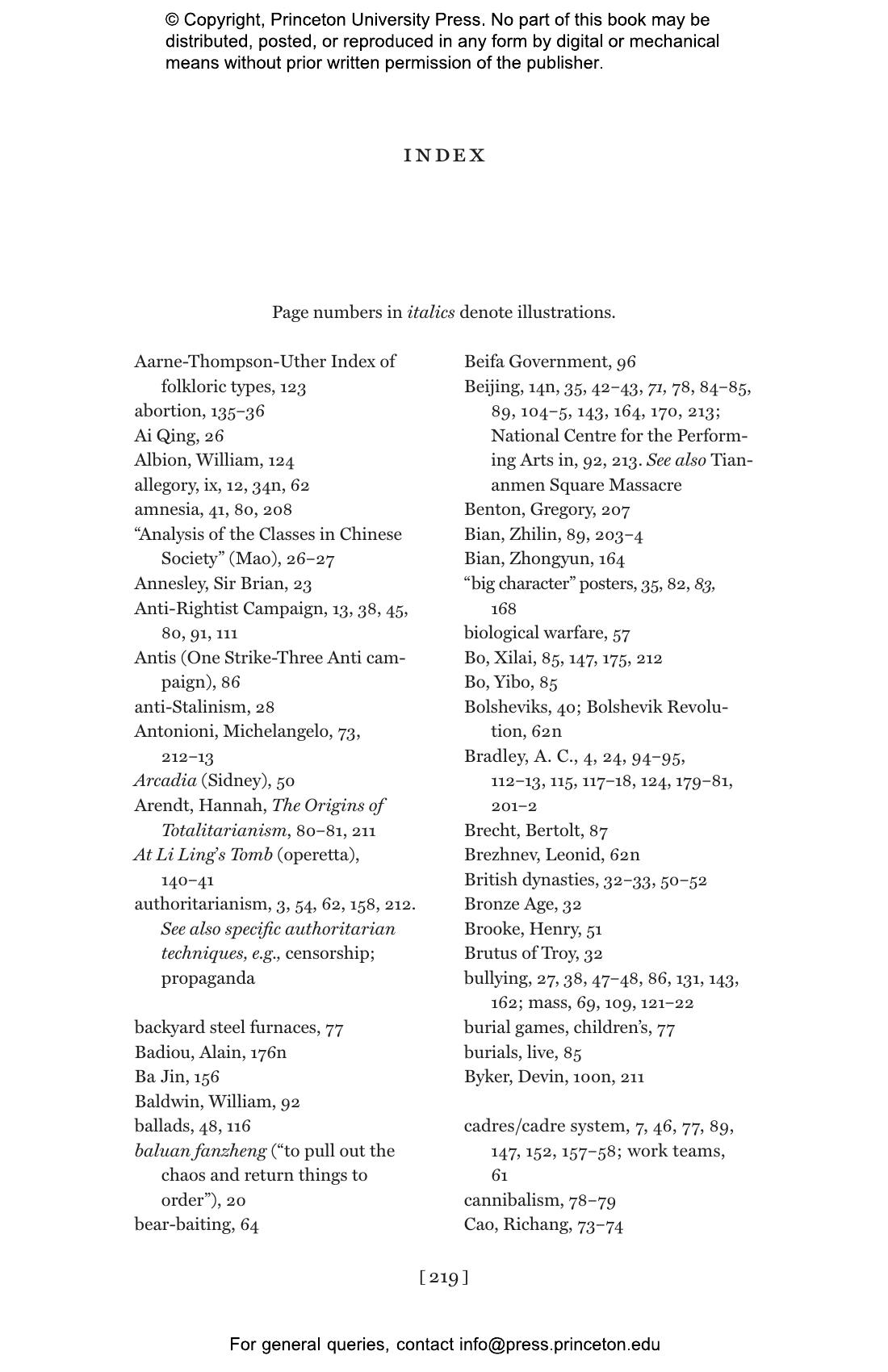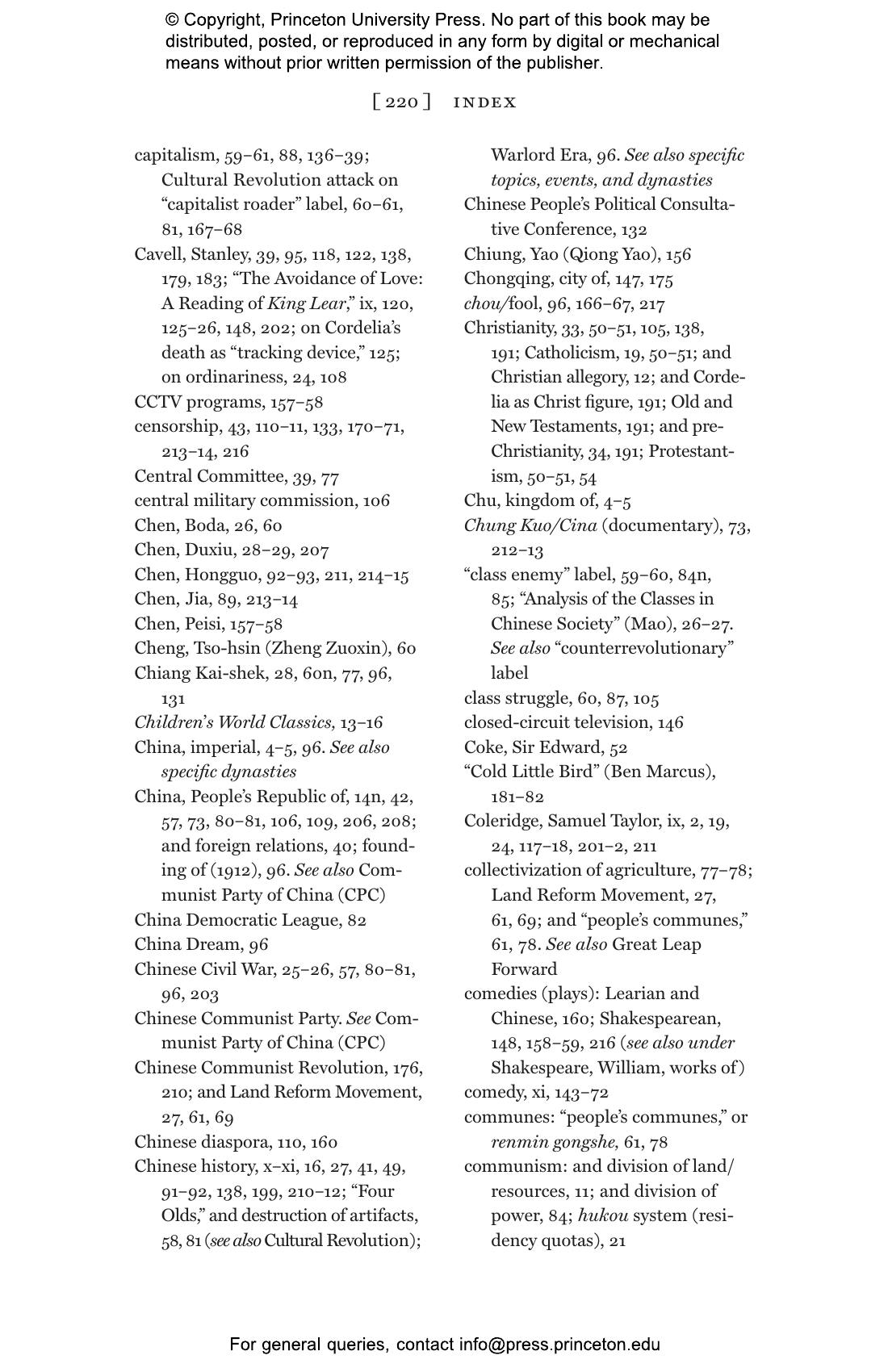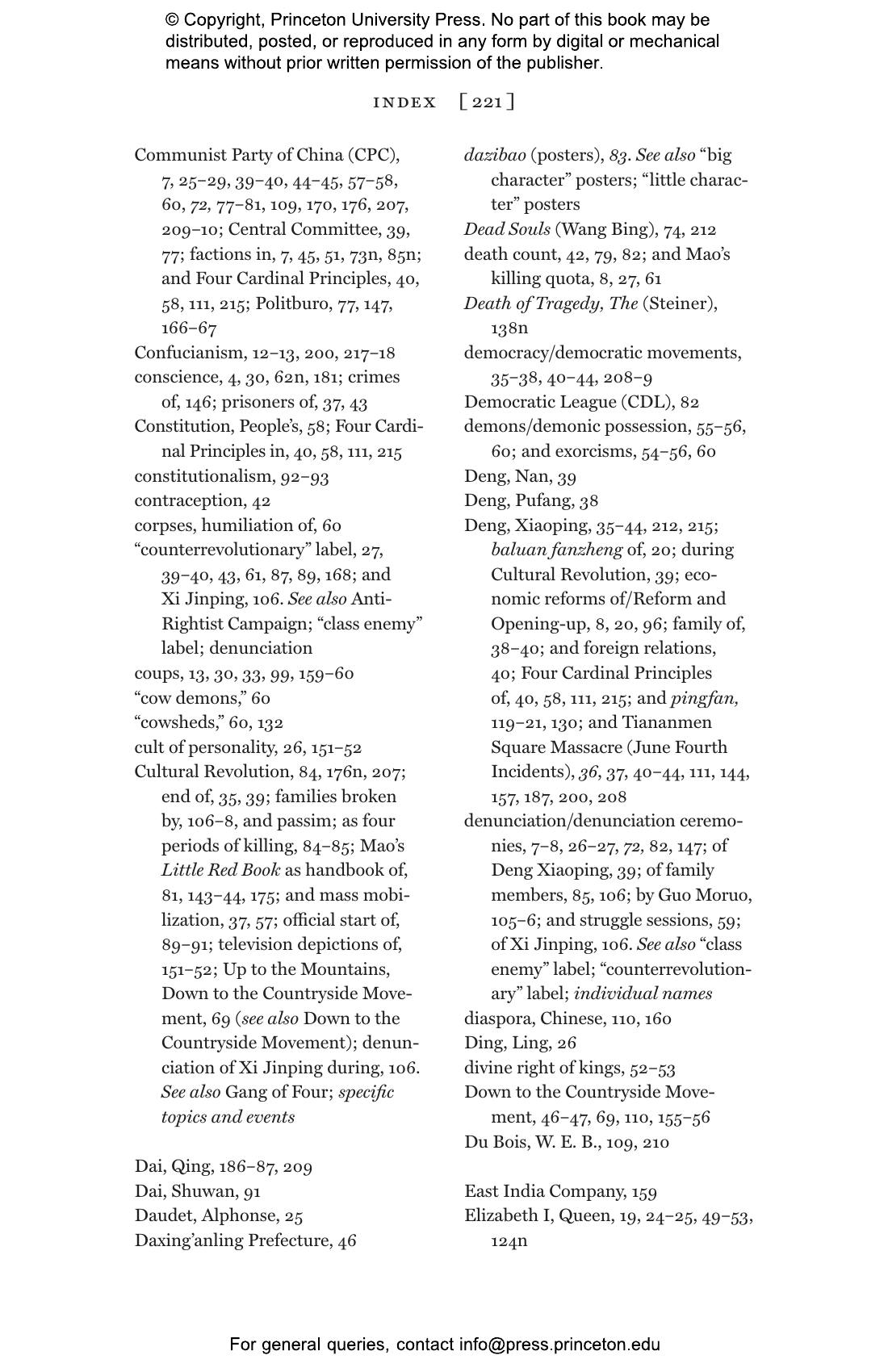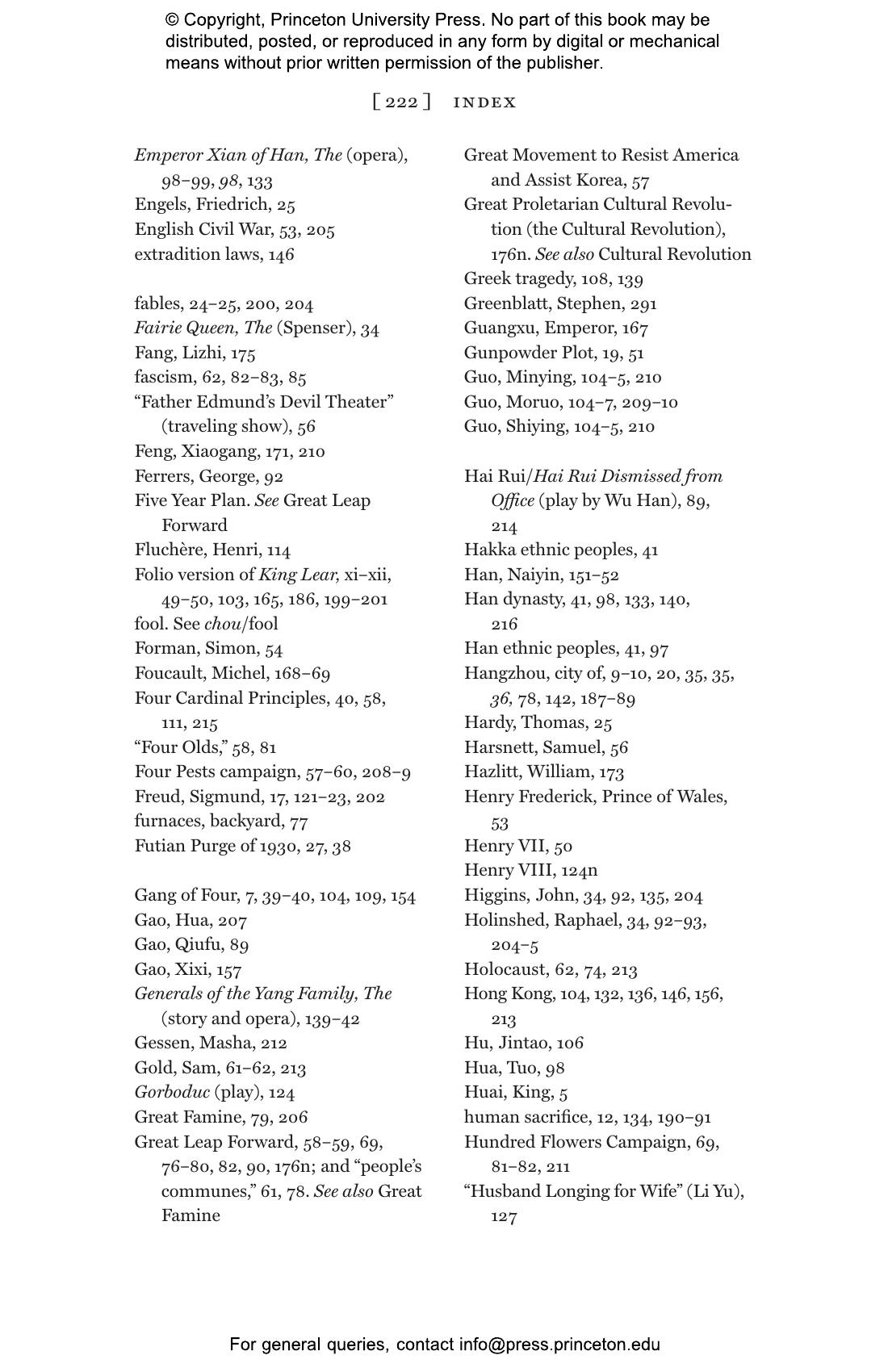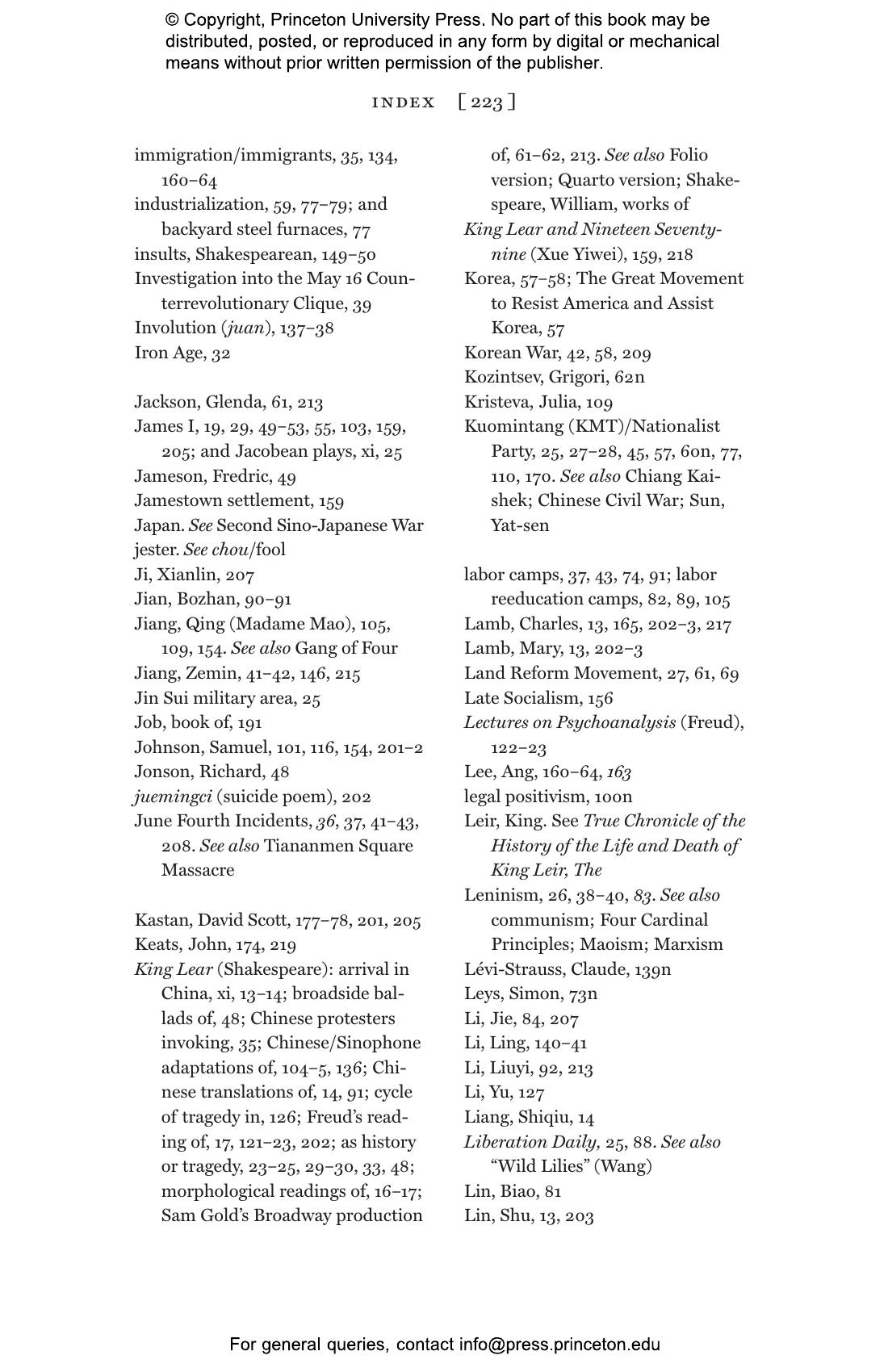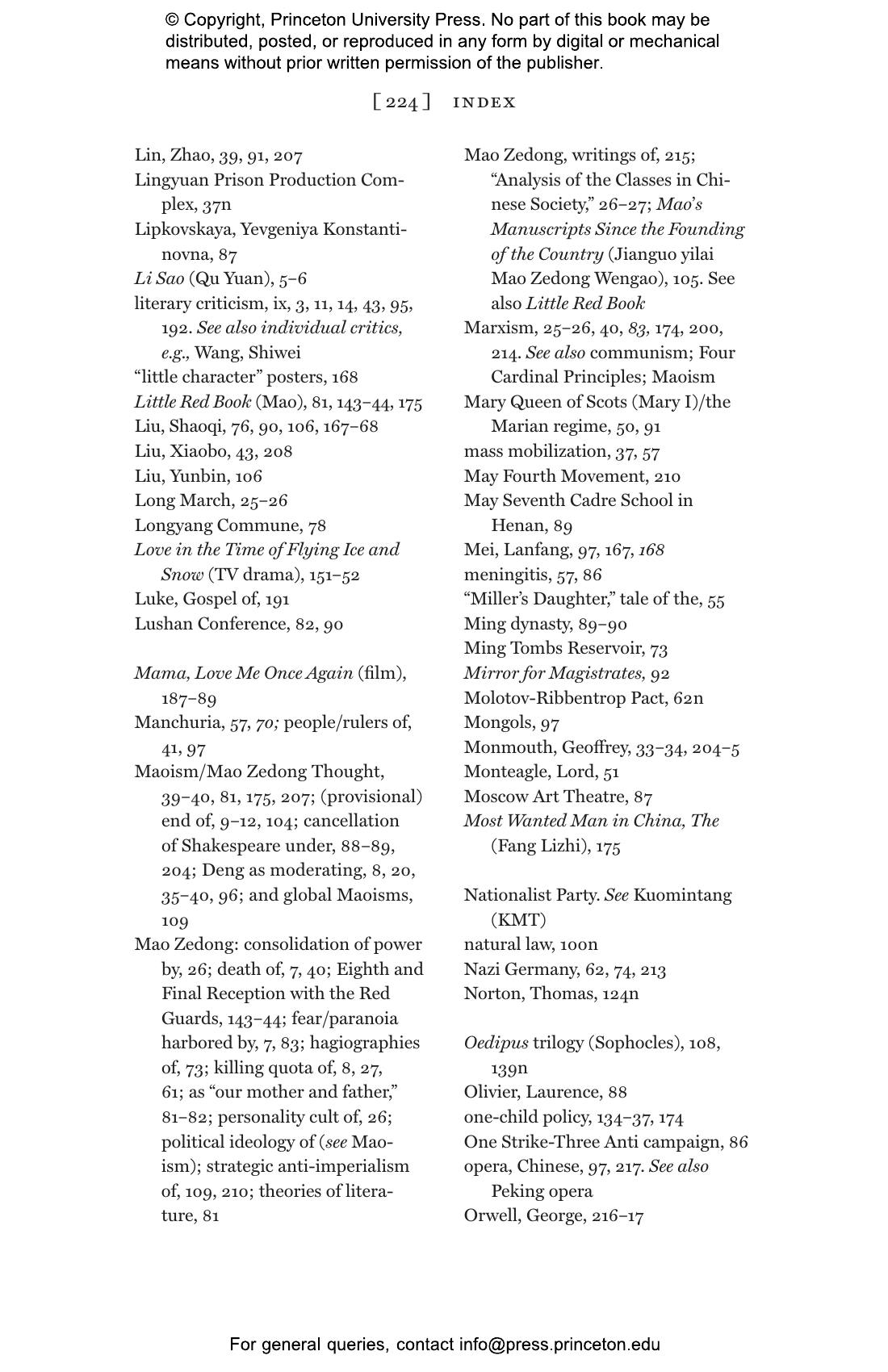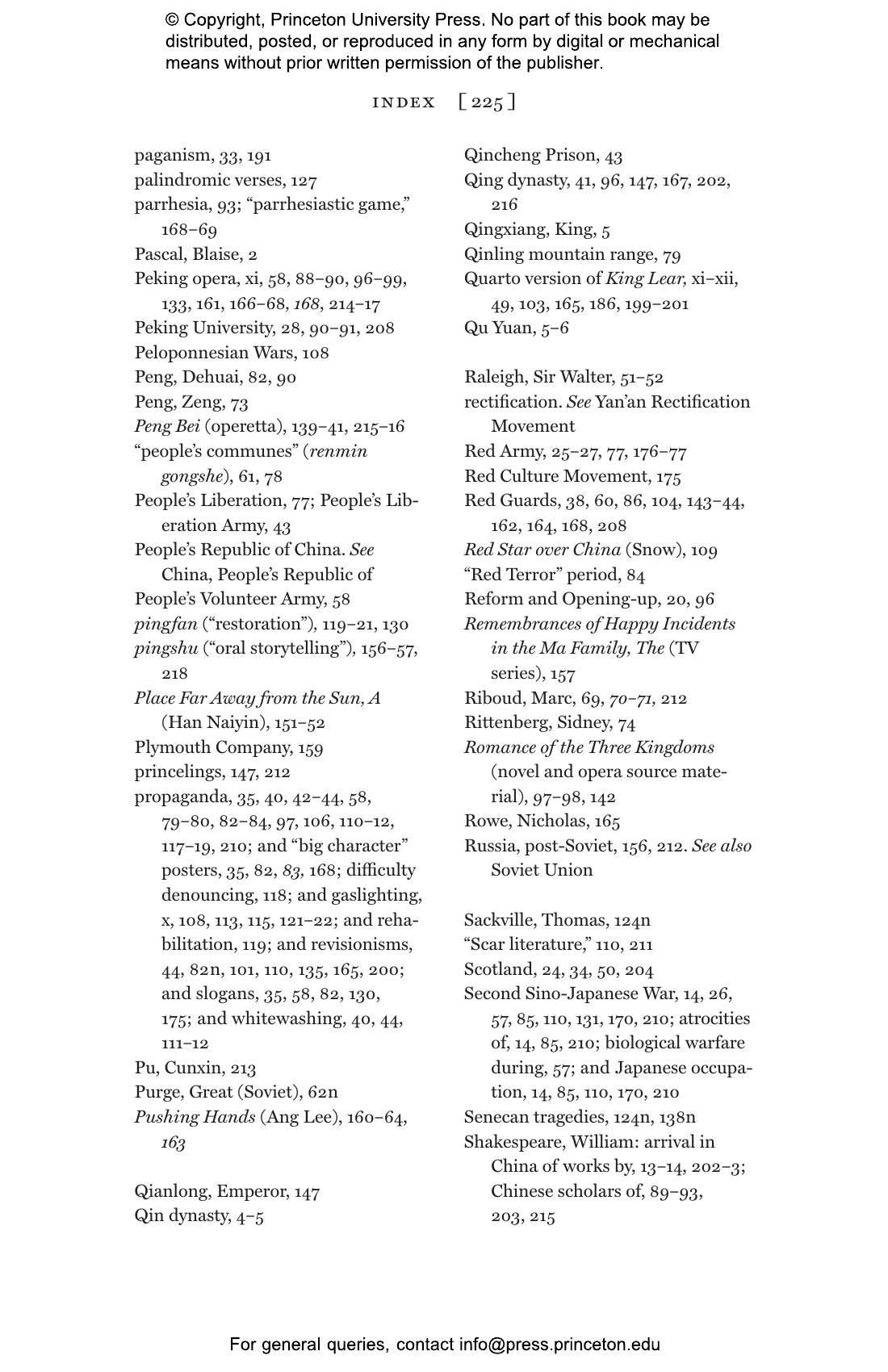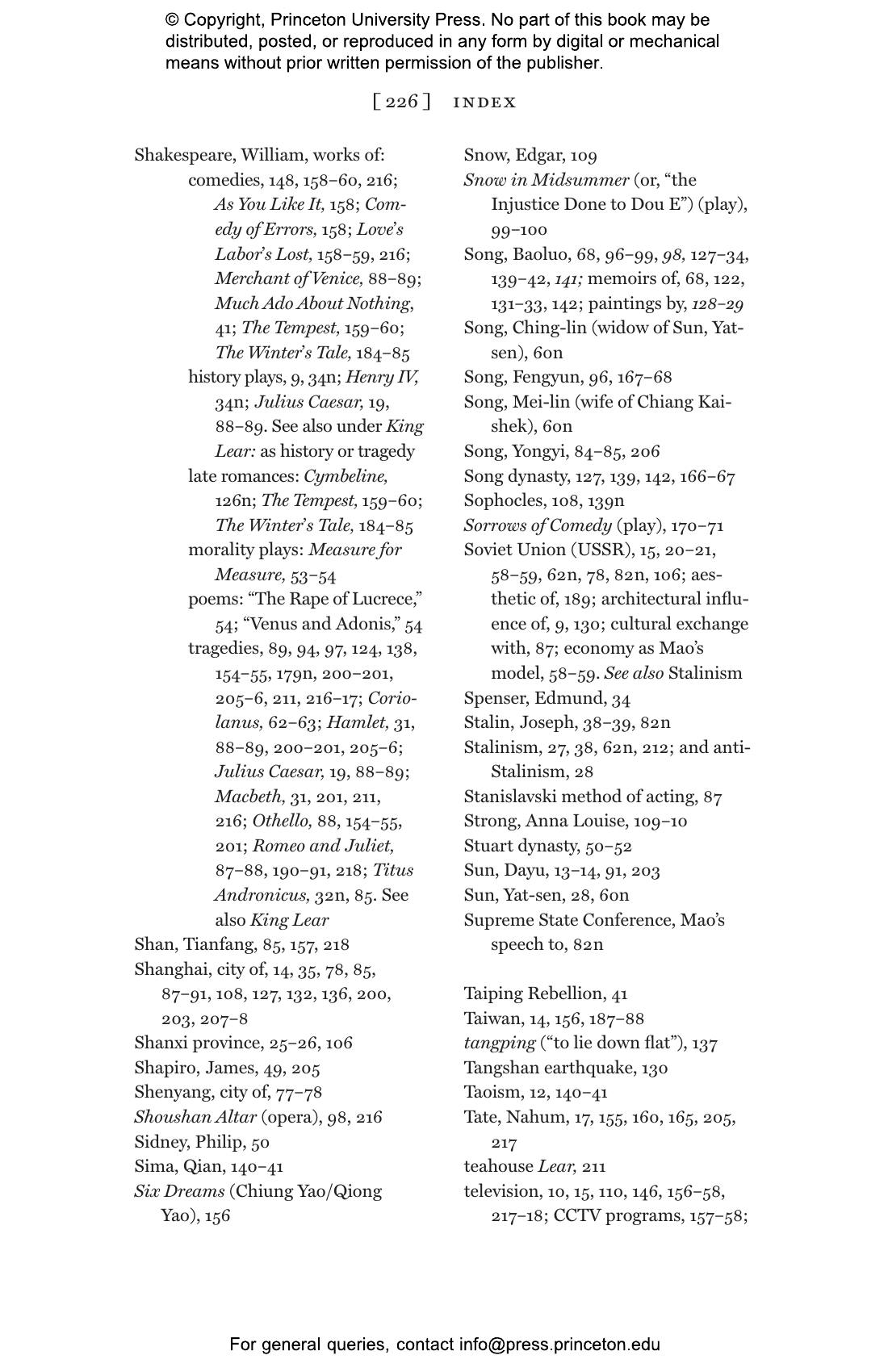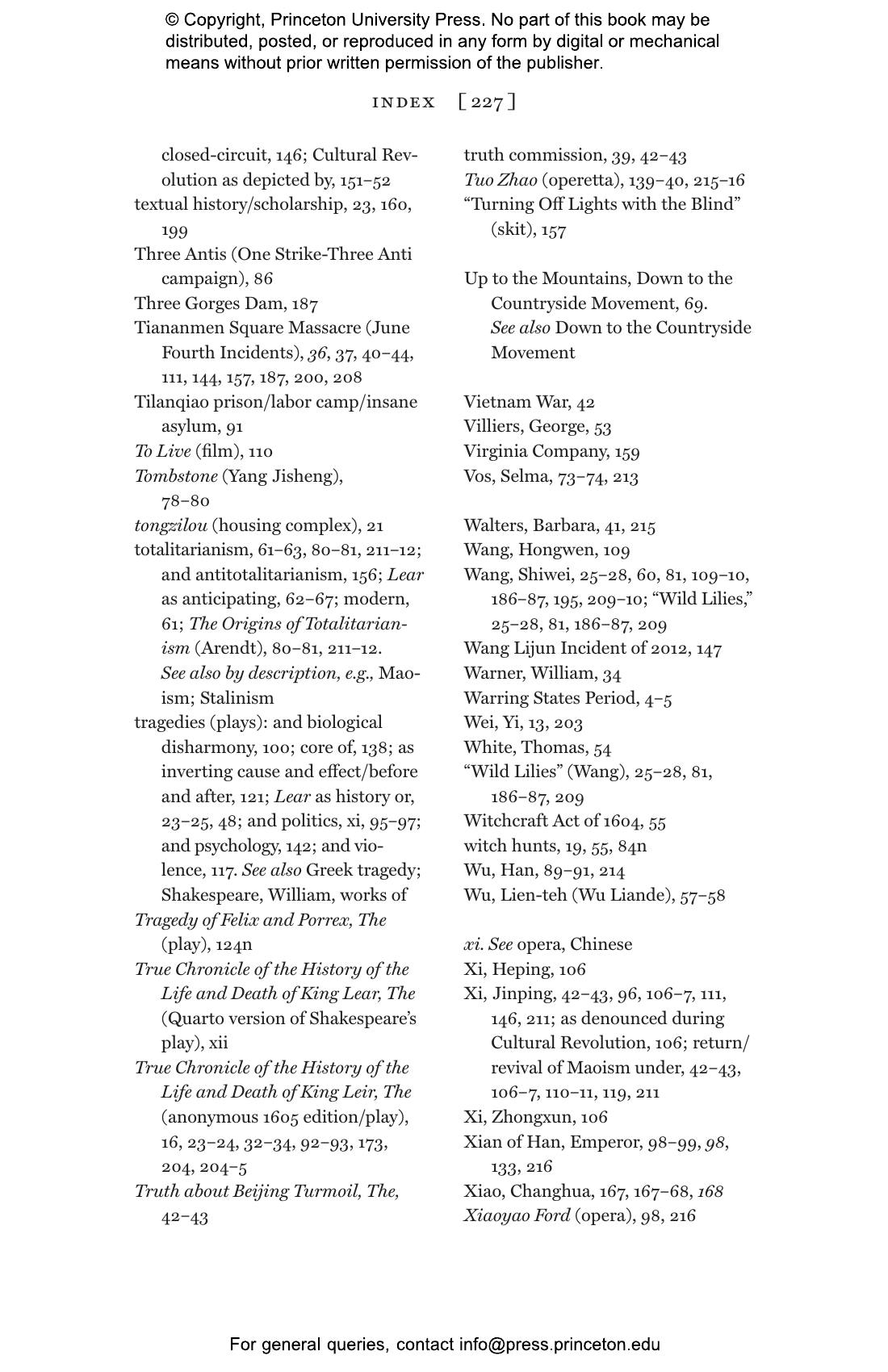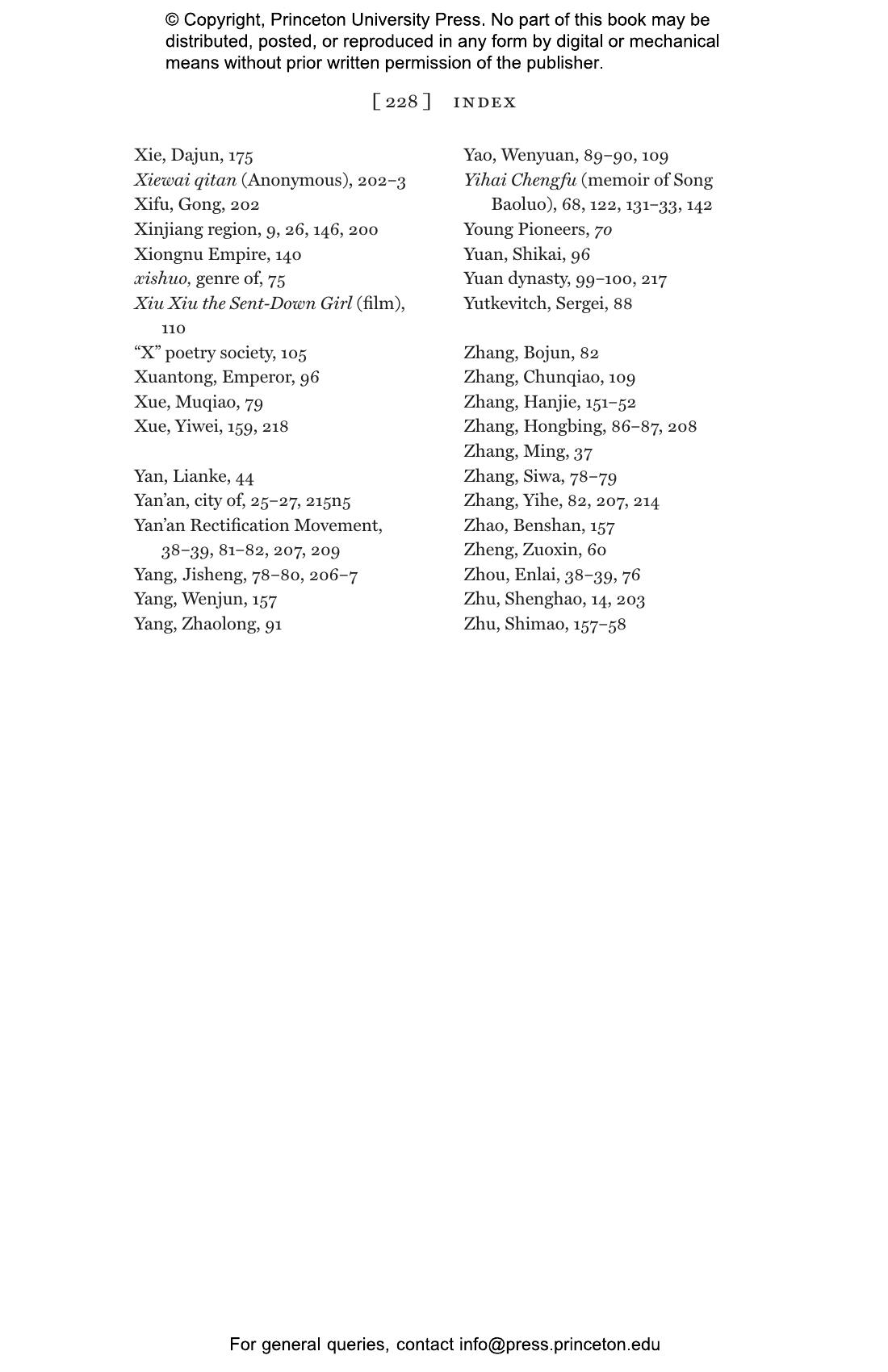At the start of Shakespeare’s famous tragedy, King Lear promises to divide his kingdom based on his daughters’ professions of love, but portions it out before hearing all of their answers. For Nan Da, this opening scene sparks a reckoning between The Tragedy of King Lear, one of the cruelest and most confounding stories in literature, and the tragedy of Maoist and post-Maoist China. Da, who emigrated from China to the United States as a child in the 1990s, brings Shakespeare’s tragedy to life on its own terms, addressing the concerns it reflects over the transition from Elizabeth I to James I with a fearsome sense of what would soon come to pass. At the same time, she uses the play as a lens to revisit the world of Maoist China—what it did to people, and what it did to storytelling.
Blending literary analysis and personal history, Da begins in her childhood during Deng Xiaoping’s Opening and Reform, then moves back and forth between Lear and China. In her powerful reading, the unfinished business of Maoism and other elements of Chinese thought and culture—from Confucianism to the spectacles of Peking Opera—help elucidate the choices Shakespeare made in constructing Lear and the unbearable confusions he left behind.
Nan Z. Da is associate professor of English at Johns Hopkins University and the author of Intransitive Encounters: Sino-US Literatures and the Limits of Exchange.
"An ambitious blend of literary criticism and political analysis. . . . Da’s grasp of China’s 20th century history demonstrates how hauntingly Shakespeare prefigures the horrors unleashed by Mao’s coercive authority."—Ron Charles, Washington Post
“This book is a brilliant achievement. Nan Da evokes Shakespearean layers of intertwining allegory, darkness, and historicity, creating a window through which we can reinterpret history—one that reveals distant hills, flowing rivers, and expansive fields. Eschewing the tedium and clichés often found in academic criticism, this book repeatedly draws us back to an inexplicable and raw reality. What happened to China? What is happening to China? Determined to uncover the truths of history, The Chinese Tragedy of King Lear compels us to revisit emotions, love, romanticism, betrayal, and folly with fresh understanding.”—Ai Weiwei
“The Chinese Tragedy of King Lear showcases an extraordinary mind: incandescent, honest, astute, even wise. This is a deeply felt, and profoundly considered, work of genre-defying criticism.”—David J. Baker, University of North Carolina at Chapel Hill
“This is an extraordinary book. It is unlike anything I have ever read before, a bracingly written and thematically wide-ranging work that moves in exciting ways between memoir and scholarship, between literary criticism and literary theory, and between Britain in the distant past and China in the last century and the present.”—Jeffrey N. Wasserstrom, author of Vigil: Hong Kong on the Brink
This publication has been produced to meet accepted Accessibility standards and contains various accessibility features including concise image descriptions, a table of contents, a page list to navigate to pages corresponding to the print source version, and elements such as headings for structured navigation. Appearance of the text and page layout can be modified according to the capabilities of the reading system.
Accessibility Features
-
WCAG v2.2
-
WCAG level AA
-
Table of contents navigation
-
Single logical reading order
-
Short alternative textual descriptions
-
Print-equivalent page numbering
-
Landmark navigation
-
Index navigation
-
Epub Accessibility Specification 1.1
-
ARIA roles provided
-
All non-decorative content supports reading without sight
-
No known hazards or warnings


